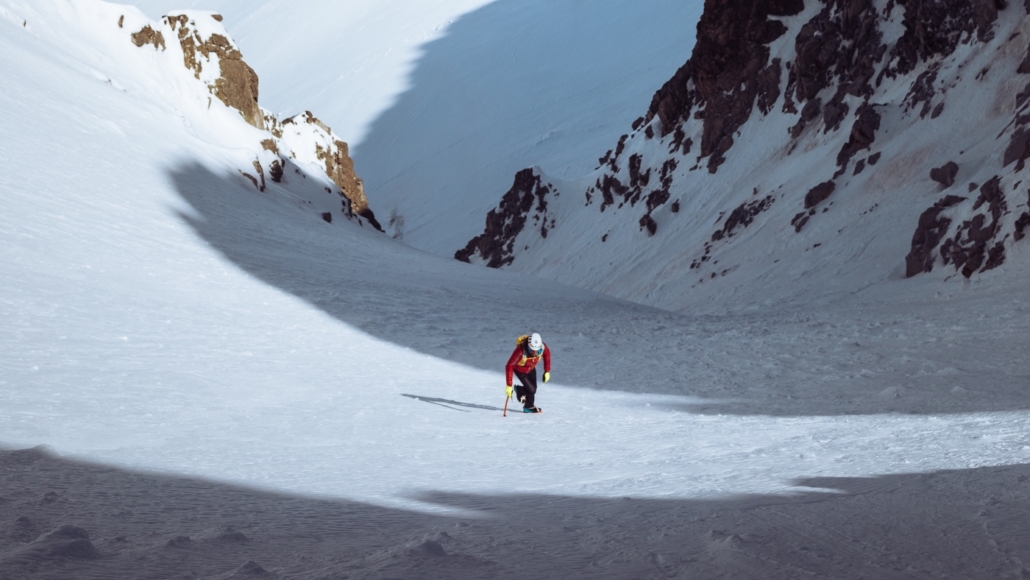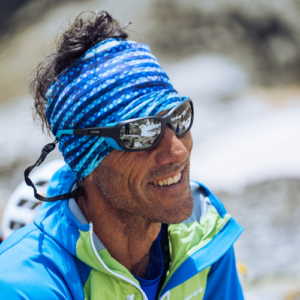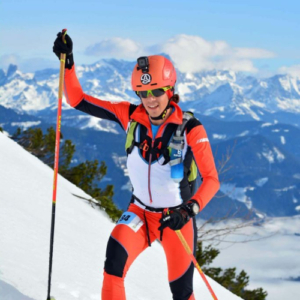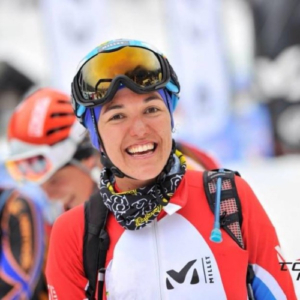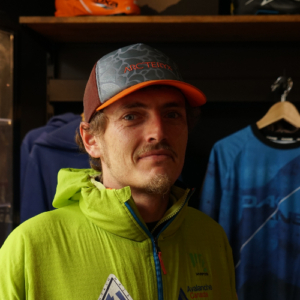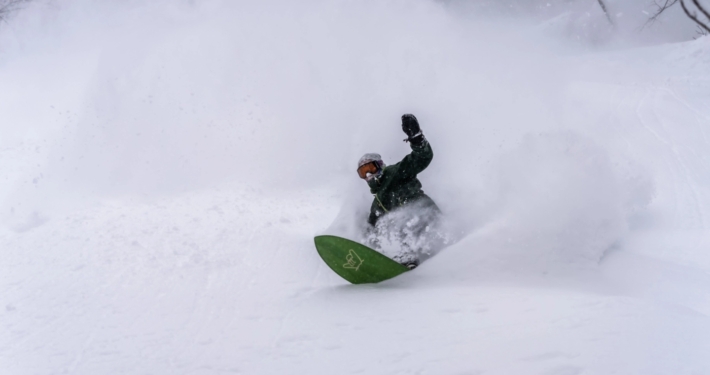Feel the winter mountain and know the secrets it hides. Climb through snow corridors, manage the risk of avalanches and go down the mountain skis in complete safety. Take the essential equipment and use it correctly.
KEY POINTS
WHAT YOU WILL LEARN
COURSE DESCRIPTION
Learn all the indispensable knowledge of the winter mountain!
Complete pack that brings together all the courses and knowledge of the WINTER MOUNTAIN. Ideal for all those lovers who enjoy trips to the mountains in winter.
The pack includes the courses of:
–Mountaineering level 1: Initiation to the winter mountains
–Mountaineering level 2: Climbing in snow corridors
–Mountaineering level 3: Climbing on ice, rock and snow
–Mountain skiing, all the keys
–Avalanche risk management
WHO IS IT AIMED AT?
This course is aimed at all mountain lovers who want to get started in the world of winter mountains as well as those who want to acquire deeper knowledge and techniques in order to be safer and get the most out of the activity.
Mountaineering LEVEL 1 - Initiation to winter mountain
| 1 | 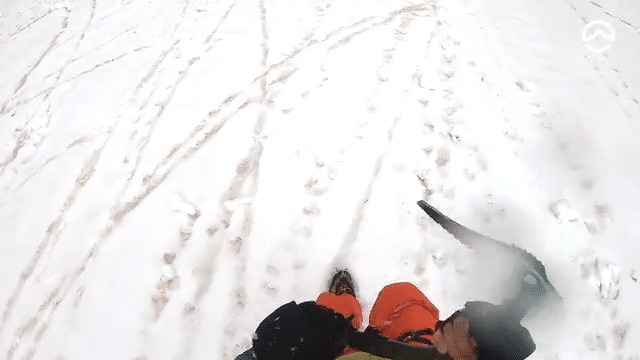 |
Mountaineering 1. What you WILL FIND in this courseA summary that focuses the objectives, agenda of the course and the possible previous and subsequent knowledge that you can do with us |
2 min. |
| 2 | 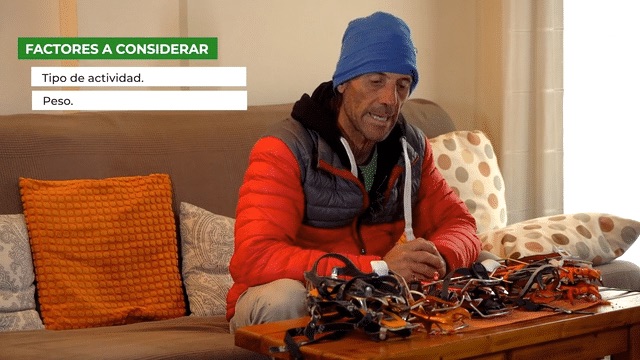 |
Types of CRAMPONS, light, automatic, rigid, straps…All types of crampons, which ones are useful and which ones are not for the activity we want to carry out. There are 3 factors that we must take into account. |
8 min. |
| 3 | 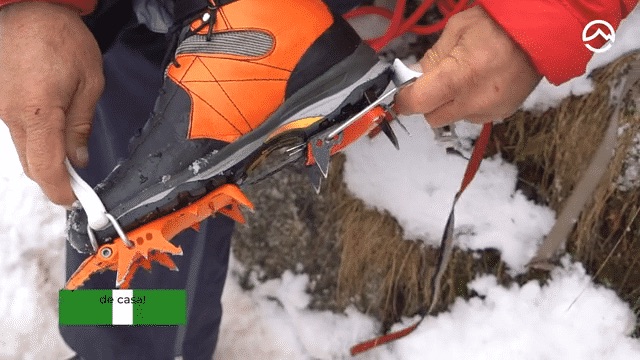 |
Avoid ACCIDENTS with cramponsAdjusting the straps and wearing an antiboot will be key to avoiding many accidents with crampons. |
2 min. |
| 4 | 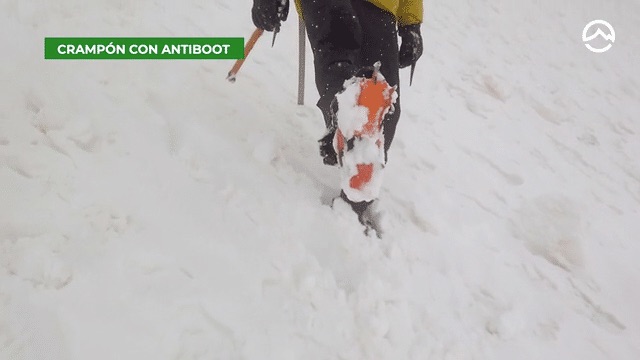 |
Importance of the ANTIBOOT for cramponsThe importance of antiboot and the consequences of some homemade tricks |
3 min. |
| 5 | 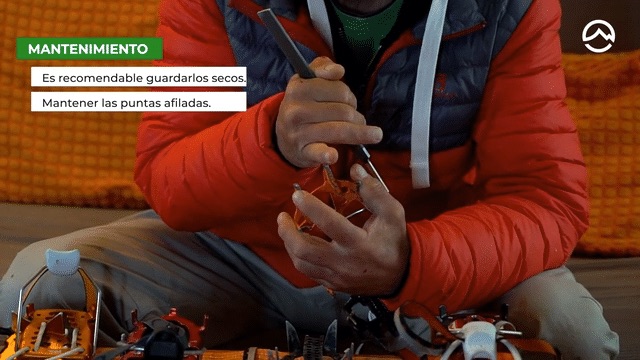 |
How to MAINTAIN my cramponsTodo el material se desgasta a lo largo del tiempo. Hacer un mantenimiento será imprescindible para alargar su vida útil. |
5 min. |
| 6 | 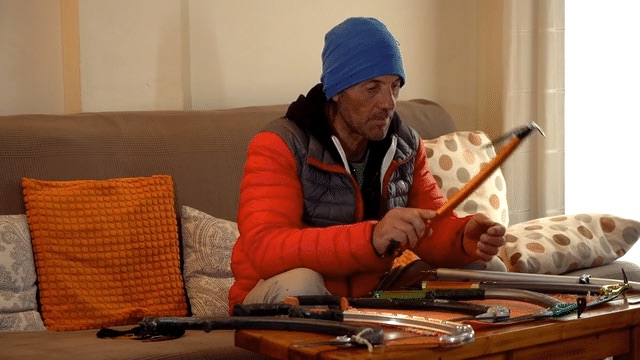 |
Típos de PIOLETS, técnicos, alpinismo, travesia…Hay 3 elementos que caracterizan los piolets, escoger el más adecuado dependerá de la actividad que queramos realizar. |
7 min. |
| 7 | 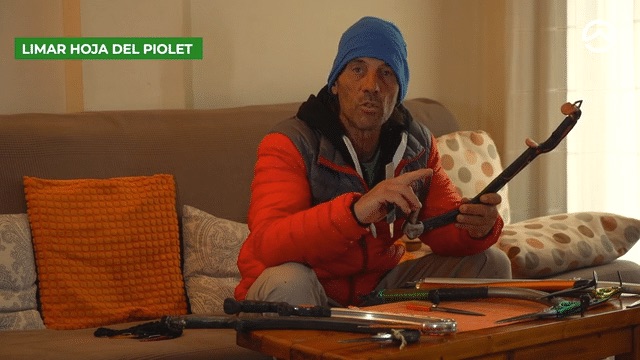 |
Cómo MANTENER mi pioletLimar correctamente el piolet y hacerle un buen mantenimiento nos permitirá sacarle mayor rendimiento. |
5 min. |
| 8 | 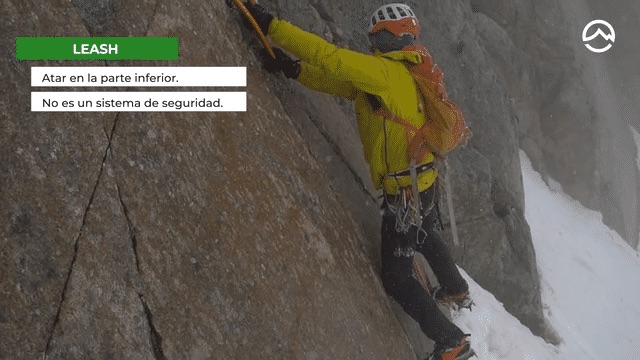 |
Reflexión sobre LLEVAR ATADO el pioletLlevar el piolet atado tiene ventajas e inconvenientes. Antes de tomar una decisión debemos valorar las consecuencias. |
3 min. |
| 9 | 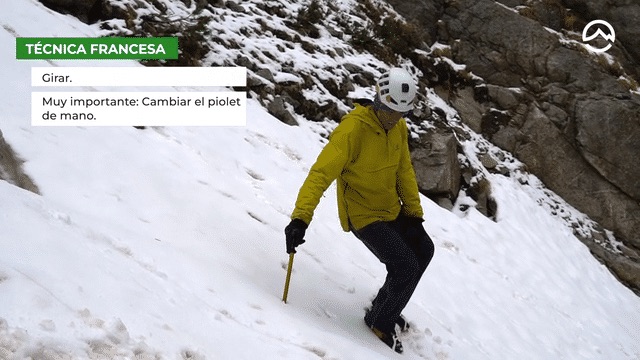 |
Andar con crampones, TÉCNICA FRANCESA de progresiónPara hacer una correcta progresión utilizando la técnica francesa, necesitaremos clavar todas la puntas y alinear la zancada con nuestro centro de gravedad. |
4 min. |
| 10 | 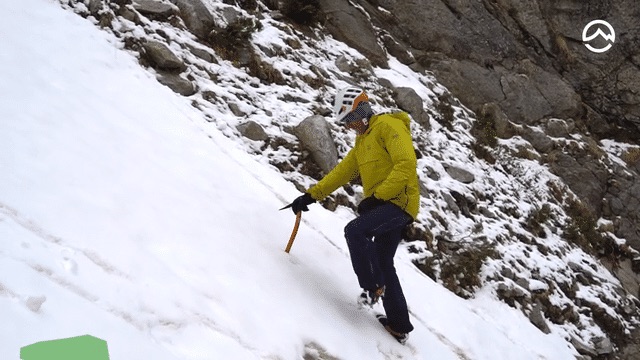 |
Andar con crampones, OTRAS TÉCNICAS de progresiónExisten 2 técnicas de progresión alternativas que también podemos utilizar en ascensos. |
1 min. |
| 11 | 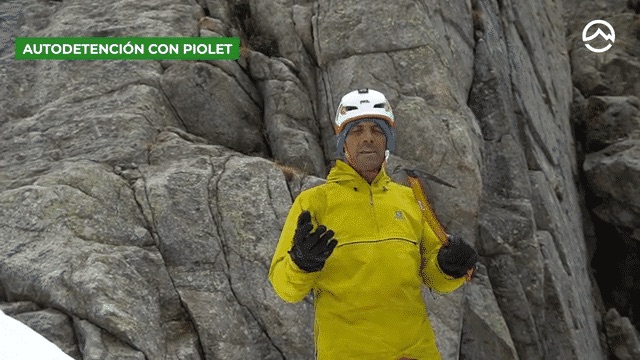 |
AUTODETENCIÓN con piolet, parase en una caidaNuestra reacción en el primer segundo de caída va a ser decisivo para el desenlace. Tener el piolet en una correcta posición nos puede salvar la vida. |
2 min. |
| 12 | 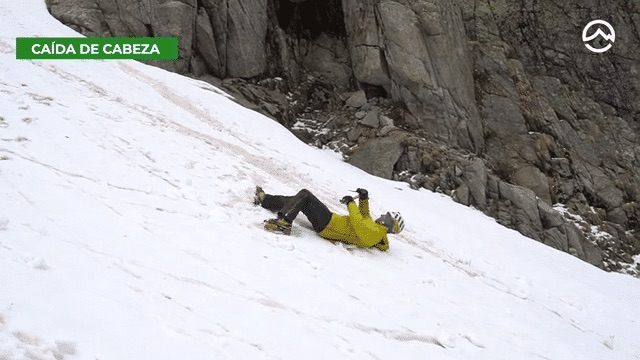 |
EJEMPLOS de autodetencion con pioletAsimilar y automatizar los sistemas de parada según la posición inicial de caída será imprescindible para autodetenernos. |
3 min. |
| 13 | 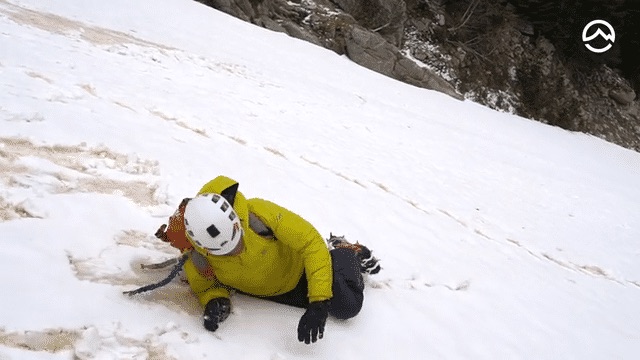 |
AUTODETENCIÓN sin piolet, también te puedes parar¿Debemos utilizar los crampones para frenar una caída? Clavar los crampones no será una buena idea. Por lo contrario, deberemos ayudarnos de los bastones. |
4 min. |
| 14 | 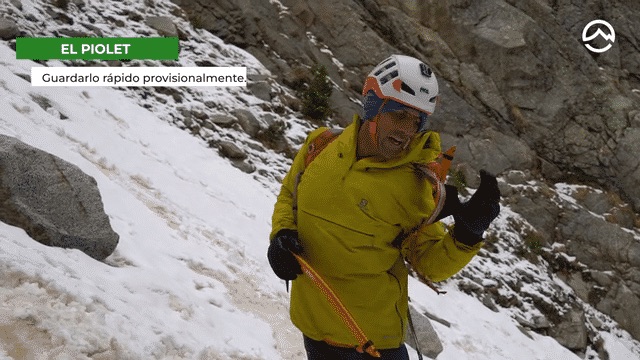 |
Algunos TRUCOS IMPRESCINDIBLES en la montaña nevadaConoce los trucos de guardado del material que te permitirán ganar en velocidad y comodidad. |
5 min. |
| 15 | 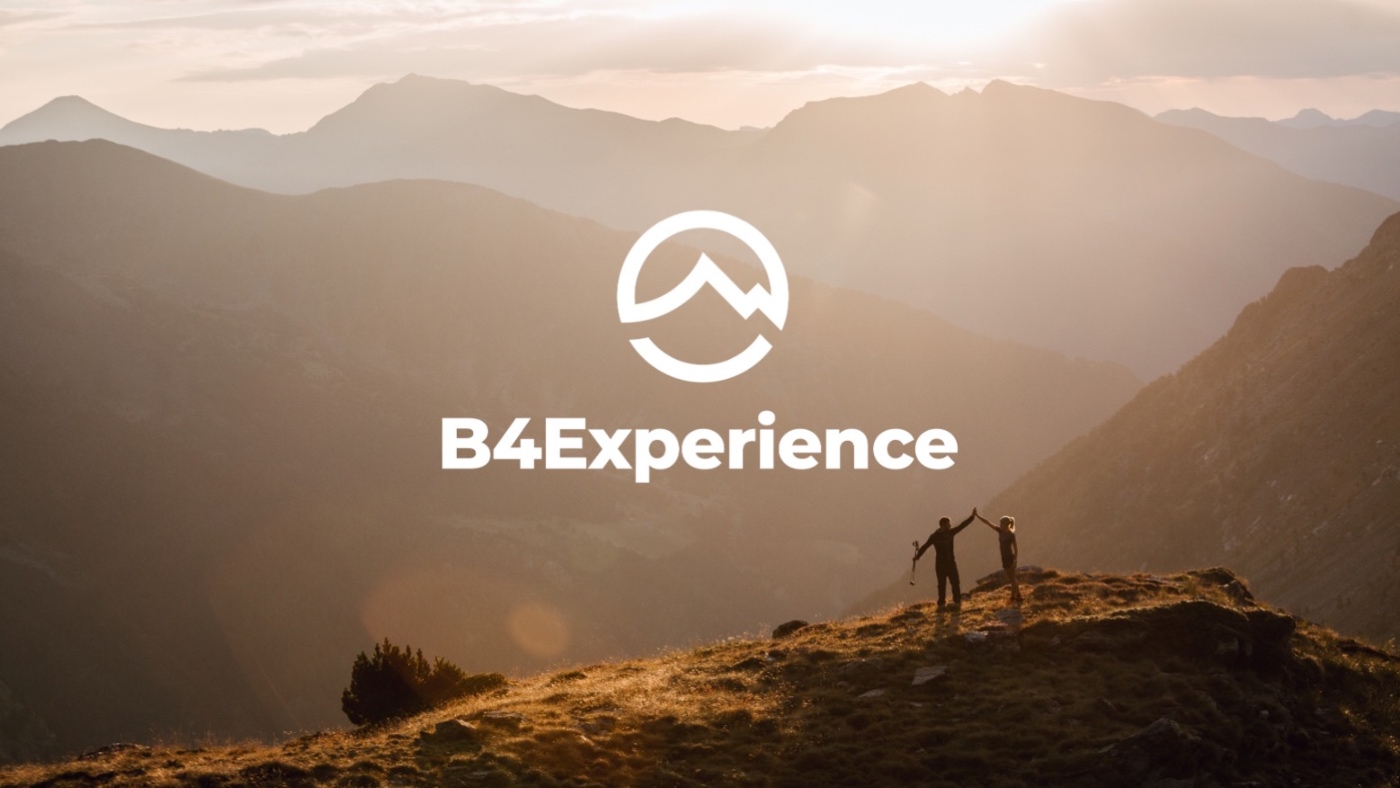 |
TEST, valida todo lo aprendidoValora por ti mismo si has comprendido correctamente toda la teoría |
10 min. |
Mountaineering LEVEL 2 - Climbing in snow corridors
| 1 | 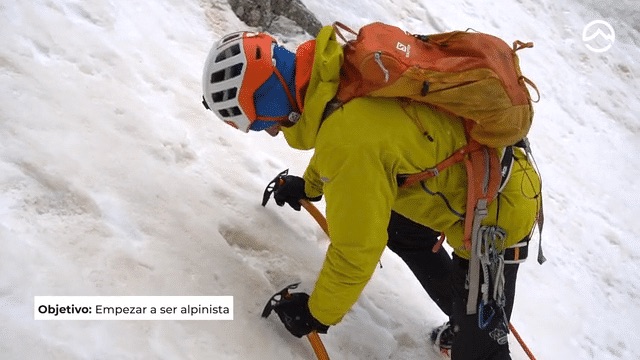 |
Mountaineering 2. What you WILL find in this courseIn this course you will find all the climbing techniques in snow corridors. |
1 min. |
| 2 | 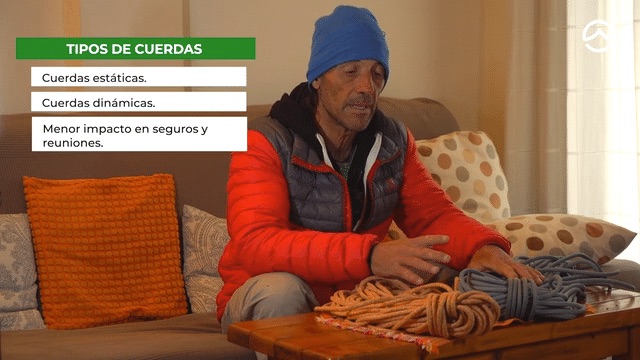 |
Types of ROPES, single, double, twin…Finding the ropes that best suit each type of activity will be essential to be well insured. Know the advantages and disadvantages of each of them. |
10 min. |
| 3 | 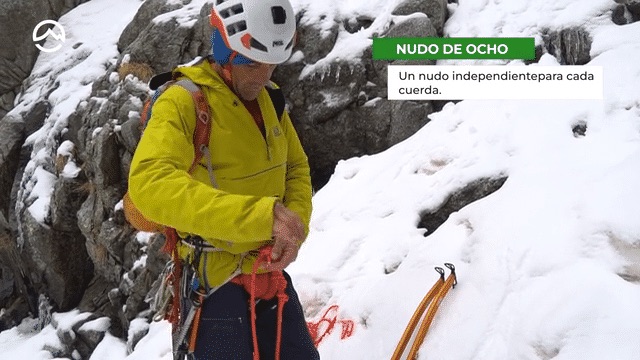 |
EIGHT KNOT, essential climbing knotsIn climbing, knowing how to tie safety knots is essential. The eight is the most important. |
3 min. |
| 4 | 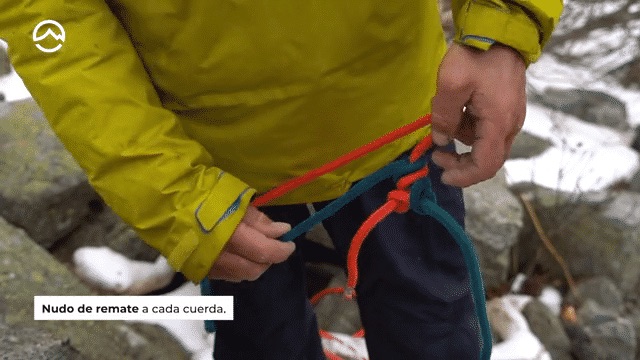 |
COW TAIL KNOT, how to join two ropesHow should we join two strings? Cow tail is the answer. |
2 min. |
| 5 | 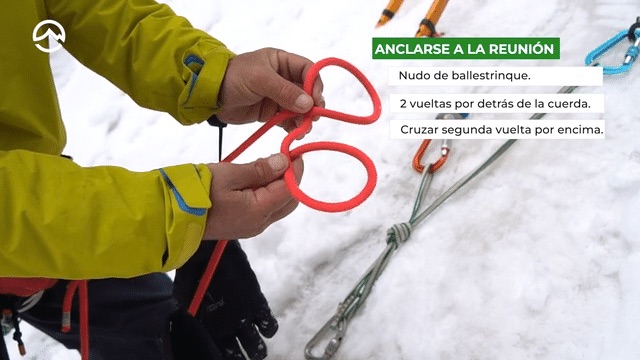 |
KNOT BALLESTRINQUE, how to anchor to a meetingTo anchor ourselves in a meeting we will use the Ballestrinque knot. This will allow us to regulate the length of the rope. |
3 min. |
| 6 | 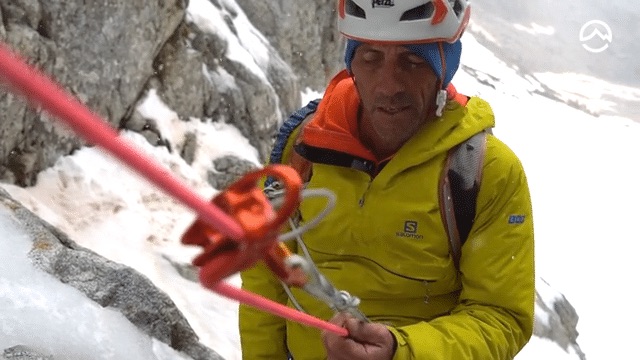 |
MACHARD KNOT climbing and rappellingThe machard knot will be in charge of securing us in a rappel due to its blocking and anti-blocking capacity. |
3 min. |
| 7 | 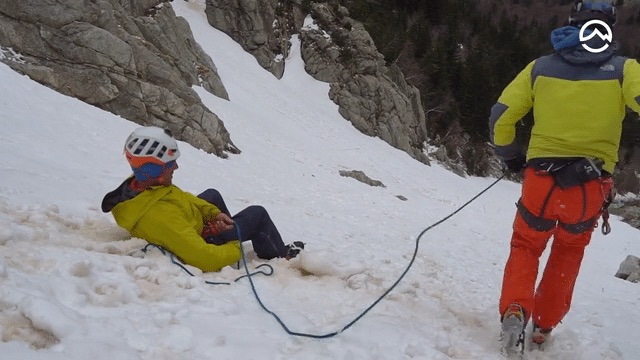 |
snow climbing ANCHORIf we find ourselves in a corridor and we don’t have a place to set up a meeting, the snow will be our goal. |
7 min. |
| 8 | 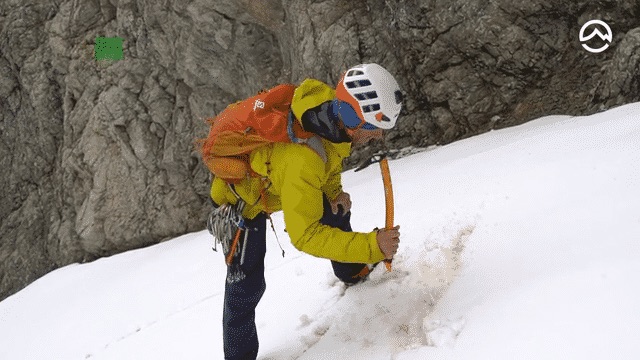 |
How to make a SNOW MUSHROOMDiscover how to mount a snow mushroom and when they should be used. |
7 min. |
| 9 | 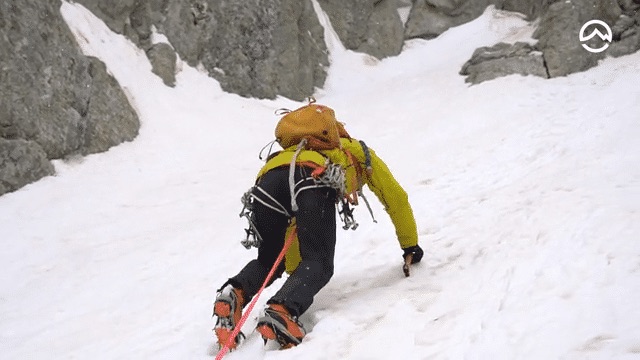 |
Climb CHANNELS and snow CORRIDORSTo climb snow corridors correctly, we must know the gestural techniques according to slopes and types of snow. |
4 minutes |
| 10 | 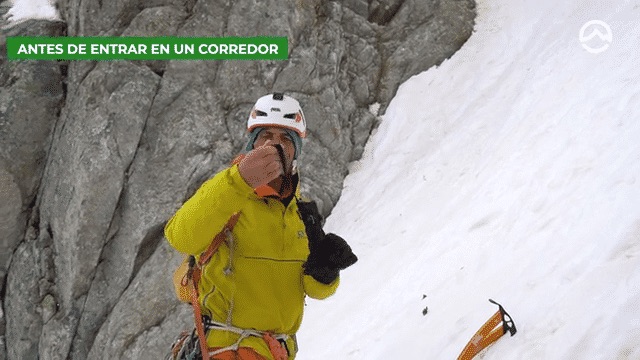 |
PREPARE to climb runnersBefore going up a corridor you must be properly equipped. Having control of all the material will be essential to start climbing. |
3 min. |
| 11 | 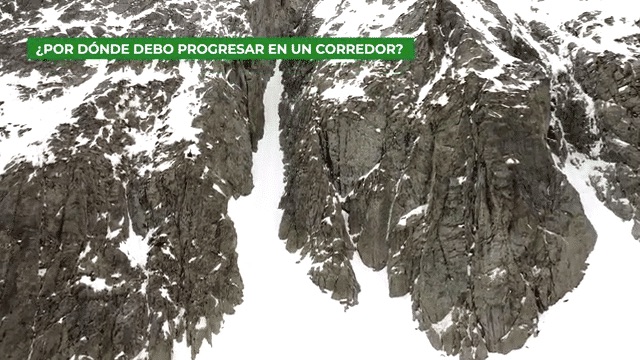 |
Protect yourself from FALLS from above in corridorsClimbing a corridor is dangerous, so it is very important to protect yourself from possible falls. Knowing where to climb it will be decisive. |
3 min. |
| 12 | 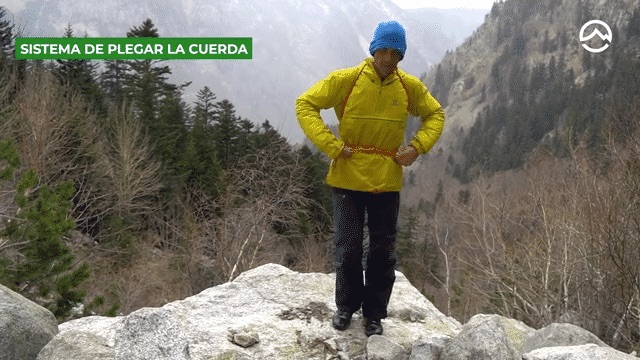 |
More essential TRICKS for CLIMBING in winterThere are many tricks for folding material that allow you to gain safety, speed and comfort. |
5 min. |
| 13 |  |
TEST, validates everything learned |
10 min. |
Mountaineering LEVEL 3 - Climbing on ice, rock and snow
| 1 | 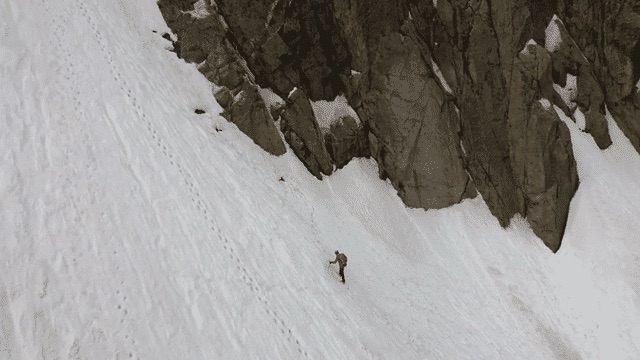 |
Mountaineering 3. What you WILL find in this courseIn this course you will find all the developed concepts of the security technique and the gestural technique in the winter mountains. |
1 min. |
| 2 | 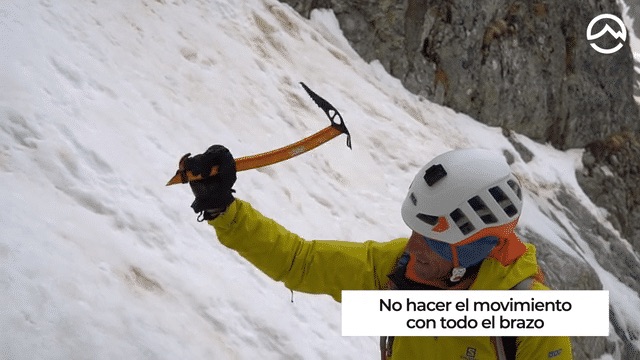 |
How to use ICE ICE ICE AXI correctlyTo anchor the ice ax on the ice, movement of the wrist is necessary. The thumb and little finger will be essential to perform the correct movement. |
3 min. |
| 3 | 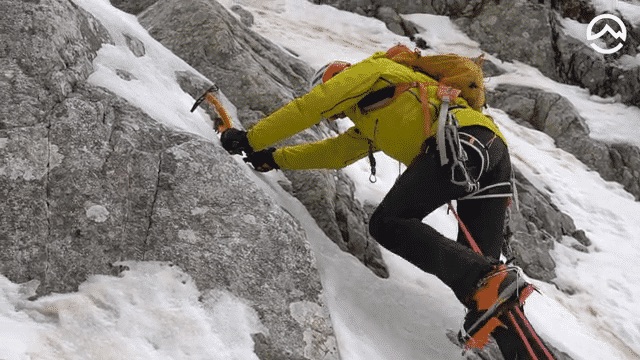 |
How to use CRAMPONS correctly on ICENot using the correct technique to nail the crampons will be an additional effort. In the worst case you can fall. |
3 min. |
| 4 | 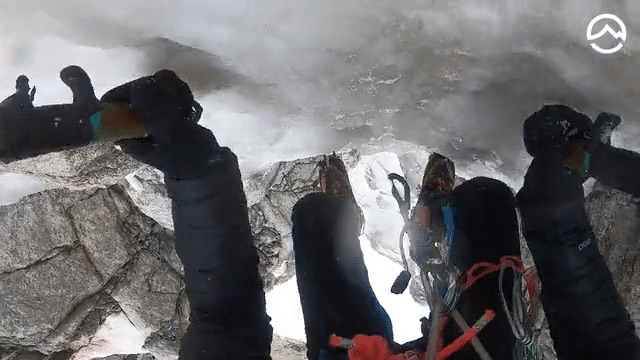 |
Ice ax technique TRACTION and alternativesWhat is the best progression technique with an ice ax? Discover which corresponds to your level. |
4 minutes |
| 5 | 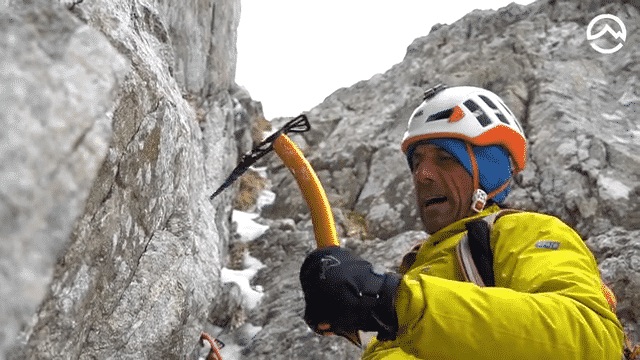 |
Climbing on MIXED TERRAIN, rock and iceCombining rock and ice is an art. Some quality details will make it easier for you. |
4 minutes |
| 6 | 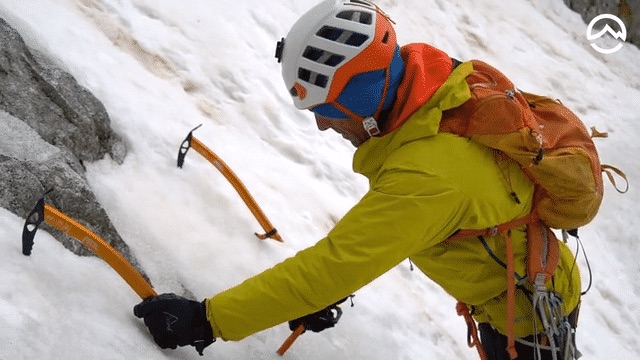 |
How to put an ICE SCREWDiscover all the steps to correctly place a screw in the ice easily and safely. |
4 minutes |
| 7 | 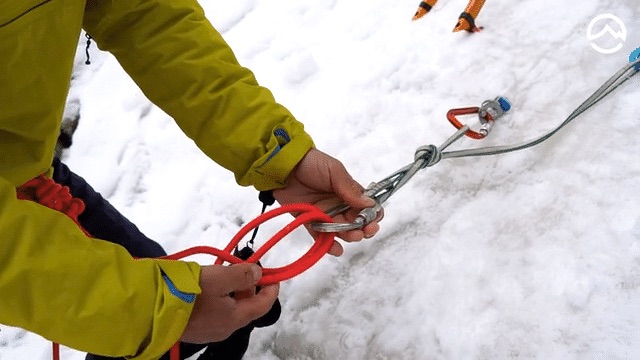 |
How to RIDE REETING on iceIt is essential to learn how to set up an ice meet correctly and safely. Much of the information we find on the internet is wrong. |
6 min. |
| 8 | 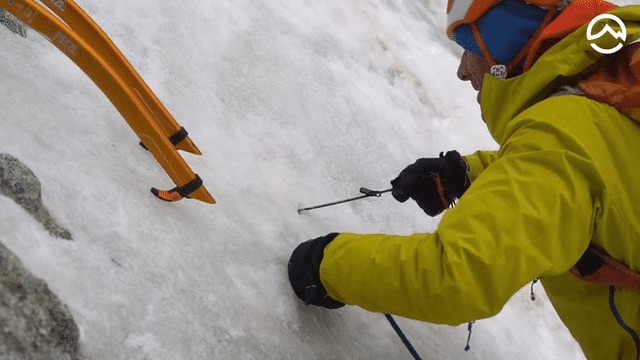 |
Ice rappelling, ABALAKOV 1Detailed technique on how to rappel on ice without having to abandon the material. |
5 min. |
| 9 | 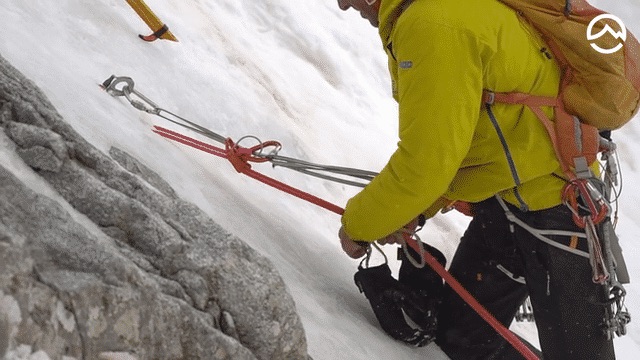 |
Ice rappelling, ABALAKOV 2But can I really rappel down a small hole in the ice? |
2 min. |
| 10 | 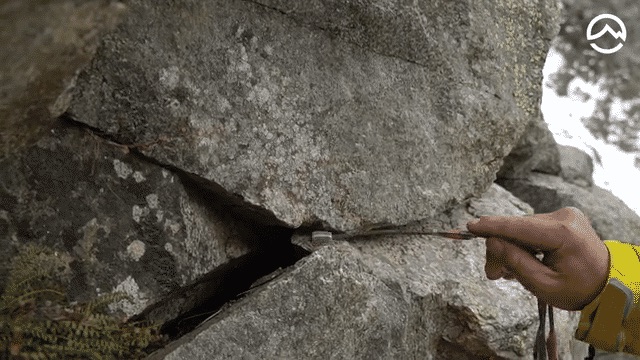 |
Use FRIENDS and FISUREROS correctlyRock walls have great options to protect you from a fall. Will we know how to place the friend and the embedder correctly? |
3 min. |
| 11 | 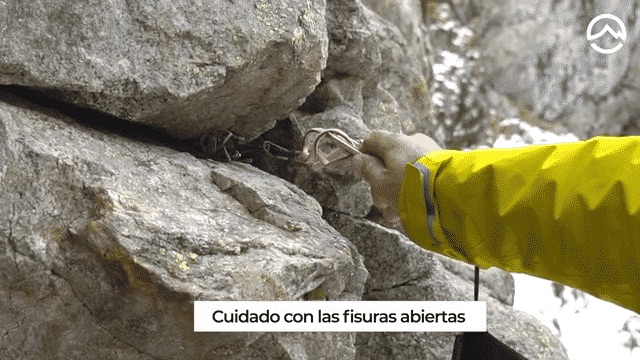 |
The 4 MISTAKES when placing FRIENDSAvoid the 4 most common mistakes when placing a friend. |
3 min. |
| 12 | 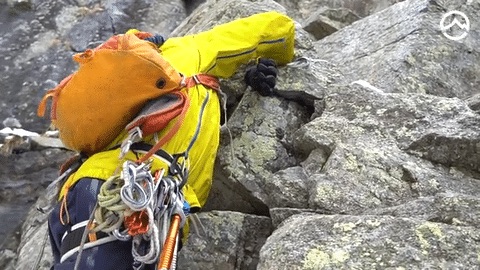 |
NATURAL ANCHORS, rock bridgeTake advantage of all the options that the rock gives you; the natural enclave par excellence. |
1 min. |
| 13 | 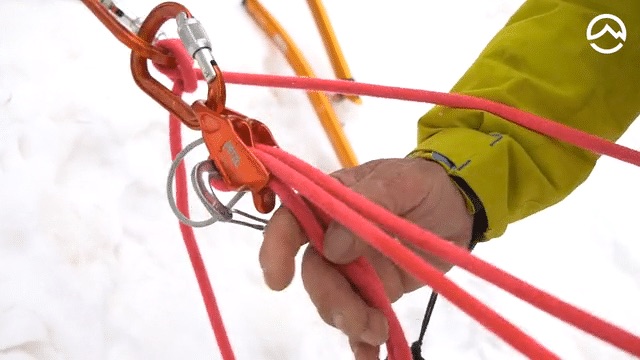 |
RIDE REUNION with friends on rockDiscover all the steps to carry out a meeting on the rock with floating insurance. Finding the ideal place to anchor ourselves will be key. |
5 min. |
| 14 | 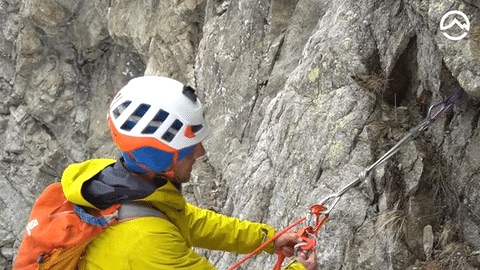 |
How to BELAY in Climbing, SECOND ropedIt is not the same to secure the first as the second of the roped. Using the back correctly will minimize the impact to the meeting. |
2 min. |
| 15 | 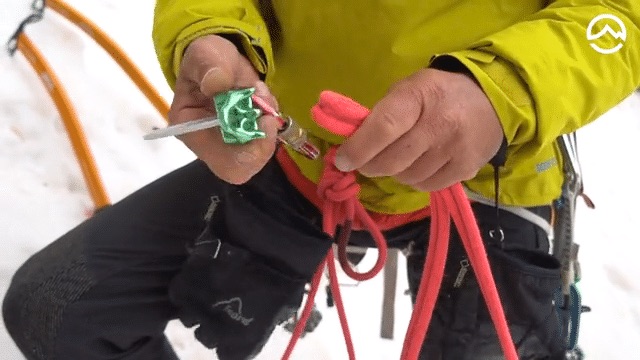 |
How to BELAY in Climbing, FIRST ropedHow should we secure the first of the roped? |
1 min. |
| 16 | 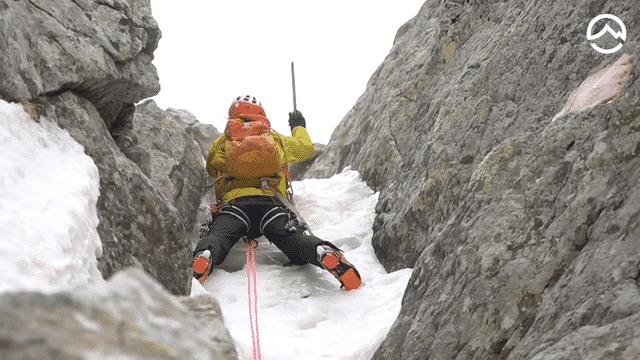 |
2 essential TRICKS in ICE climbingIce climbing is very dangerous. Evaluating the consequences in each situation is necessary. Use these two tricks. |
2 min. |
| 17 | 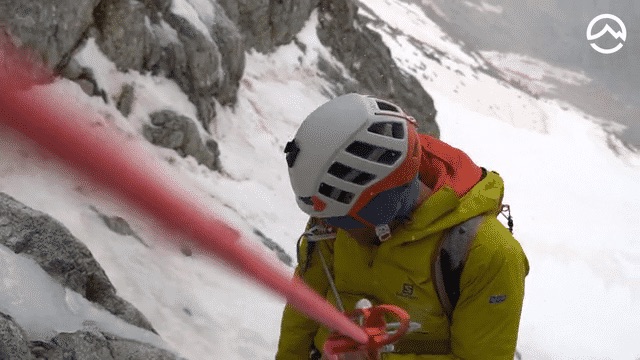 |
ABSEIL ABANDONMENT, single ropeThe time always comes when we must abseil from abandonment. How should we do it with simple rope? |
3 min. |
| 17 |  |
TEST, validates everything learned |
10 min. |
Avalanches: The 3 key factors
| 1 | 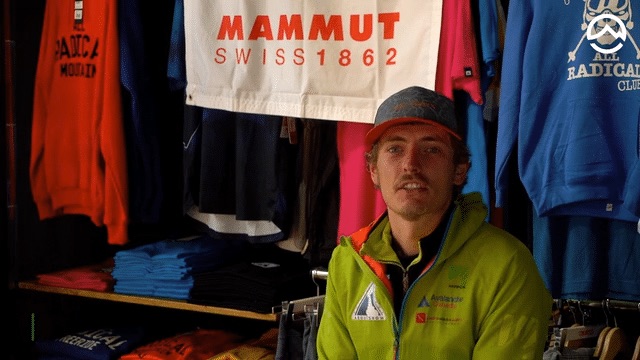 |
Course presentationPresentation of the course “Avalanche risk management. Online part of the STA1 by Avalanche Canada.” Who I am? |
2 min. |
| 2 | 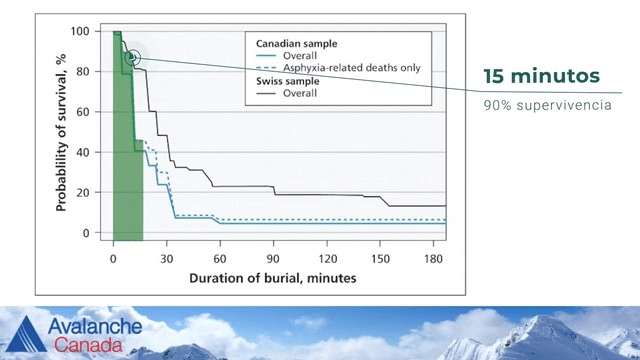 |
The 6 OBJECTIVES of the courseThe risks of being trapped in an avalanche, its possible consequences and the techniques that we will use to minimize them. |
2 min. |
| 3 | 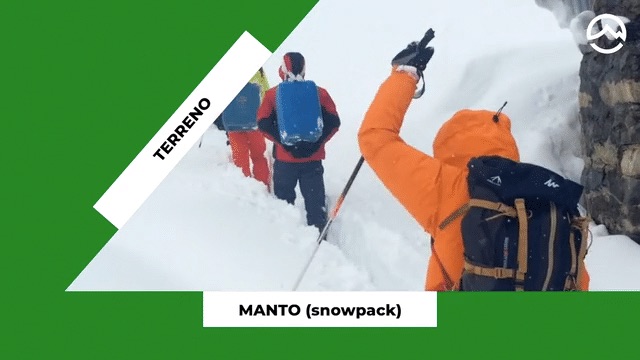 |
The AVALANCHE TRIANGLE – 3 key factorsThe avalanche triangle will allow us to identify the degree of danger on the ground. There are 3 factors that we must take into account. |
2 min. |
| 4 |  |
TEST 1: Introduction to AVALANCHE MANAGEMENT in the fieldEvaluate for yourself if you have correctly understood all the theory. |
10 min. |
| 5 | 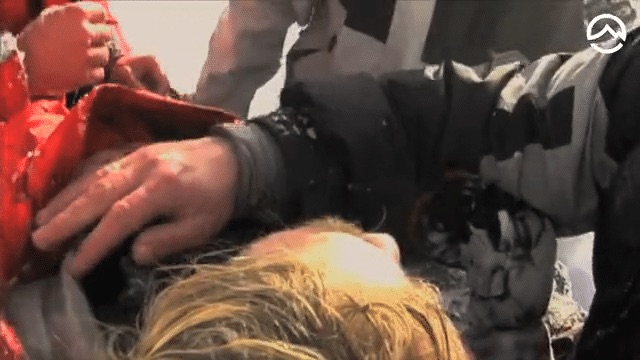 |
The 6 TRAPS of the MIND – The right decision93% of fatal accidents occur due to our own decisions. Knowing the 6 mental traps and not letting them condition us will be key to making the right decisions. |
5 min. |
| 6 | 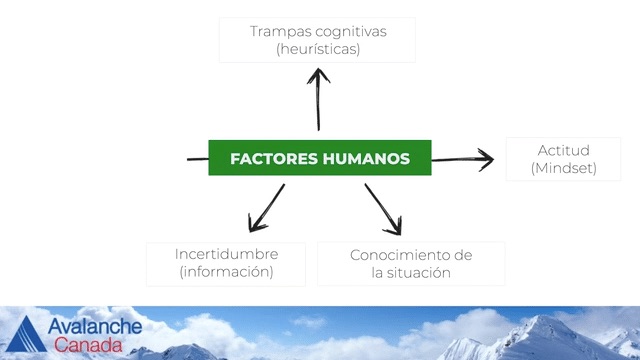 |
HEURISTIC Traps – The SHORTCUTS of our brainMaking the best decisions is complicated. To do this, we should not be letting heuristic traps play a trick on us. |
5 min. |
| 7 | 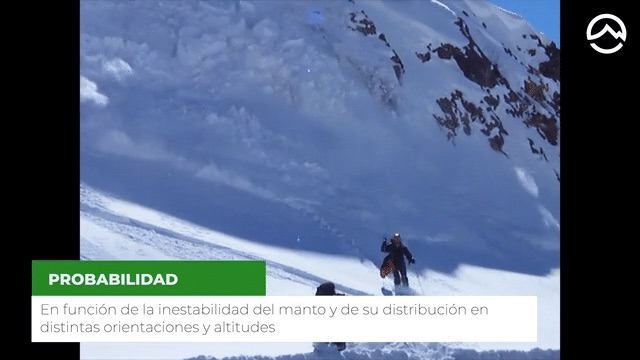 |
How to MANAGE RISKBeing clear about all the variables that amplify or reduce risk is essential to be able to manage it. |
5 min. |
| 8 |  |
TEST 2: The human factorEvaluate for yourself if you have correctly understood all the theory. |
10 min. |
| 9 | 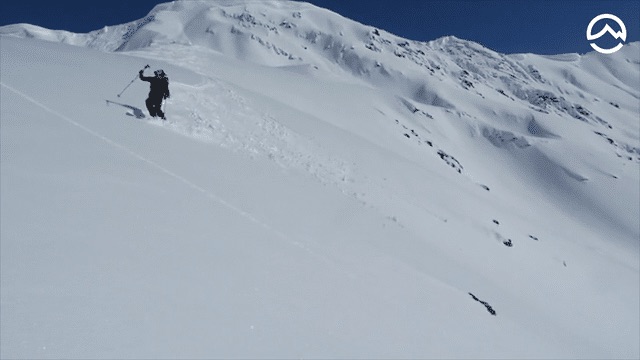 |
GROUND SAFETY – Our main ALLYThe terrain is one of the factors in the avalanche triangle. Knowing it will allow us to manage it better. |
1 min. |
| 10 | 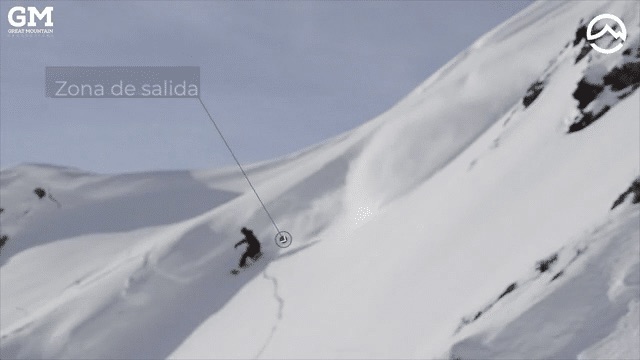 |
The 3 PARTS of an AVALANCHEKnowing how to identify the different parts that make up an avalanche is necessary. |
1 min. |
| 11 | 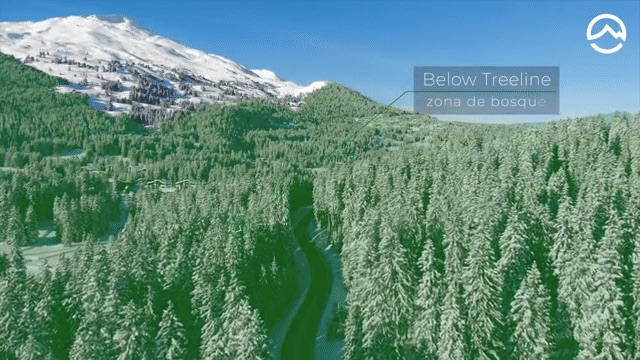 |
GROUND elevation BANDSThere are 3 terrain elevation bands. The alpine is usually the starting point of most avalanches. |
2 min. |
| 12 | 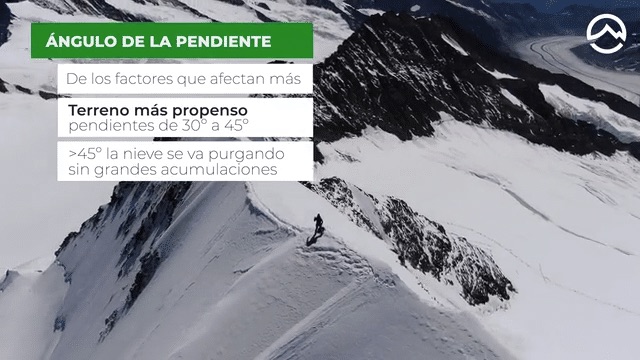 |
SLOPE ANGLE – Main factor of AVALANCHESThere are particular factors that help determine the severity of the terrain in the avalanche. The angle of the slope is one of them. |
3 min. |
| 13 | 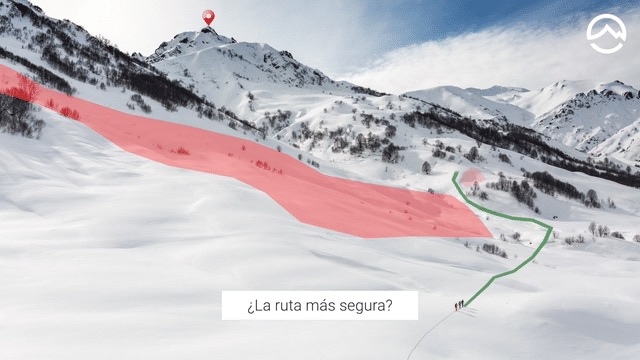 |
SIZE and SHAPE of the SIDE – The art of finding a ROUTEThe size and shape of the avalanche is proportional to the size of the slope. Finding the perfect route is an art. |
3 min. |
| 14 | 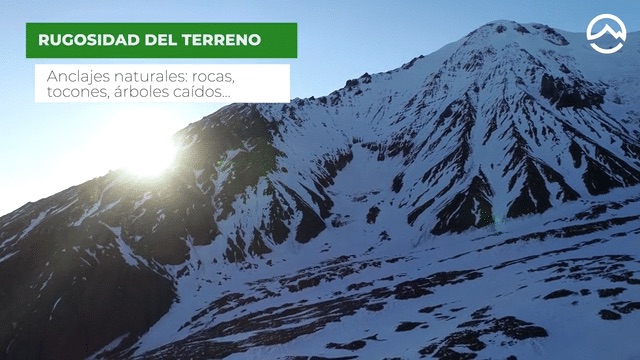 |
GROUND ROUGHNESS and forest coverThe roughness of the terrain and forest cover will be key to favoring the possibility of an avalanche. |
3 min. |
| 15 | 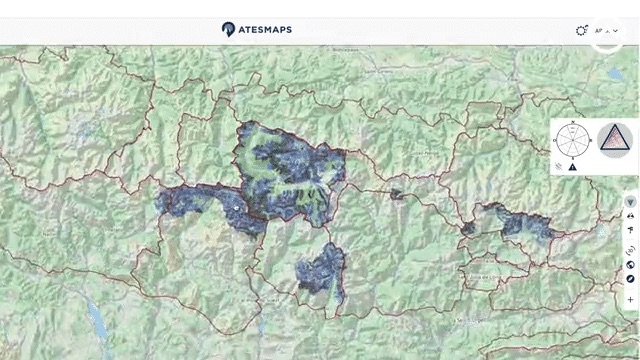 |
ATES Maps – ROUTE PlanningThe day before departure, taking an ATES map is the best option to correctly plan the route. |
3 min. |
| 16 | 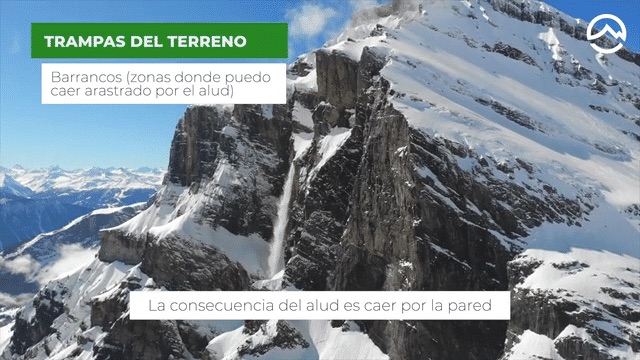 |
TERRAIN TRAPS – What if we get stuck?Terrain traps are elements that we should always include in our planning. |
2 min. |
| 17 |  |
TEST 3: The terrainConseValue for yourself if you have correctly understood all the theory. |
10 min. |
| 18 | 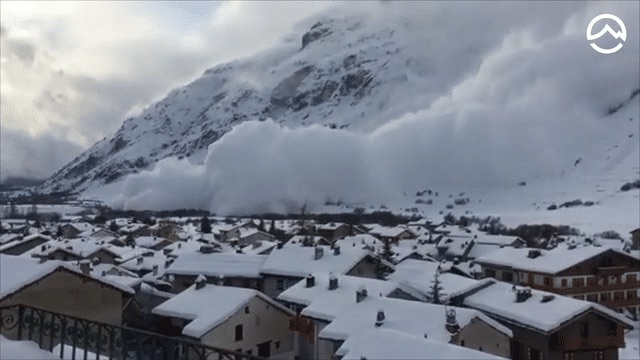 |
TRIGGERS of AVALANCHES – Natural and humanWe all know what the consequences of an avalanche are. But what about your triggers? |
3 min. |
| 19 | 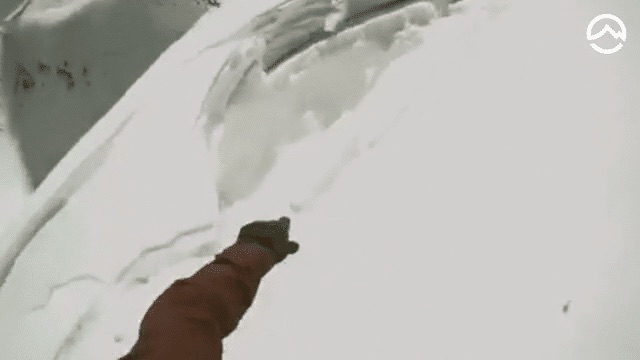 |
AVALANCHES according to the type of OUTPUT and SNOW – ClassificationWe can distinguish the types of avalanches depending on the type of exit and the state of the snow. Identifying them correctly is essential. |
4 minutes |
| 20 | 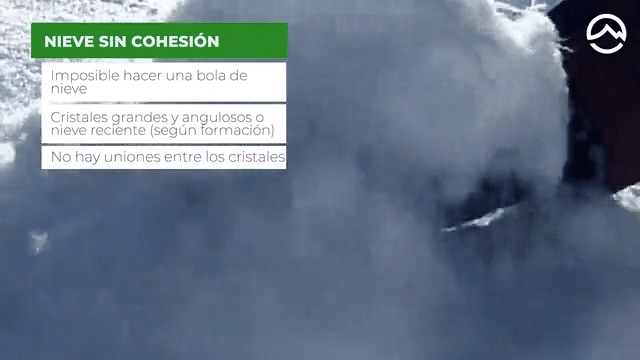 |
The LAYERS of the SNOW COVERSnow deposited on a slope is made up of different layers. The whole set is known as the snow cover. |
3 min. |
| 21 | 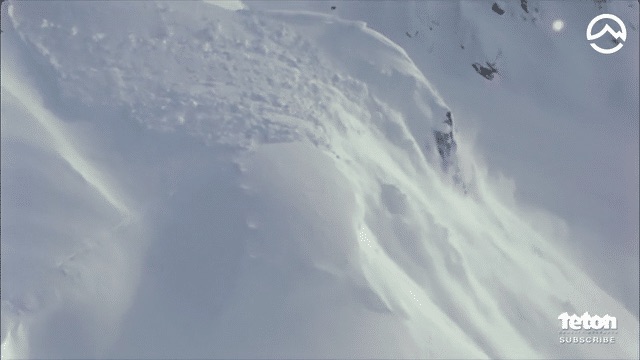 |
The 5 typical PROBLEMS of AVALANCHESThere are 5 typical avalanche problems. Identifying them will be key. |
8 min. |
| 22 | 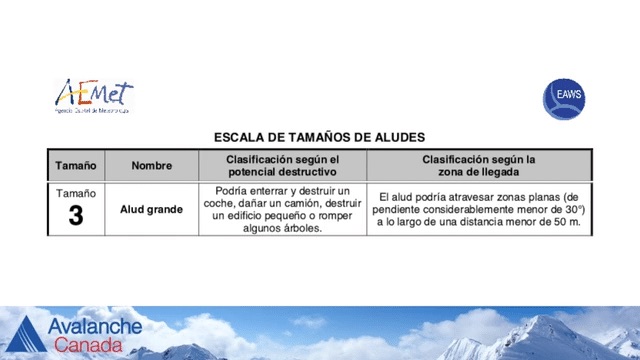 |
SIZE of AVALANCHES – The 5 SCALESWe classify avalanches into 5 size scales. Its consequences can be devastating. |
2 min. |
| 23 | 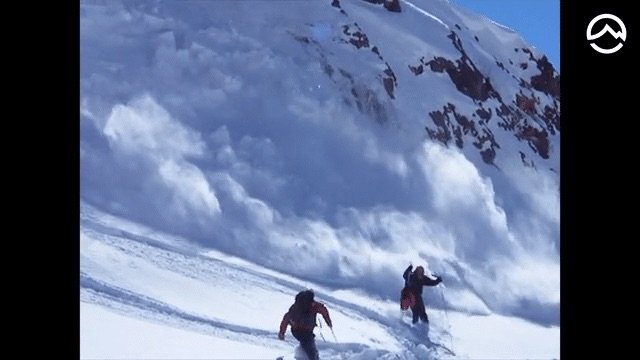 |
OFF PISTES in SKI resortsThe off-piste in ski resorts is a terrain susceptible to avalanches. |
1 min. |
| 24 | 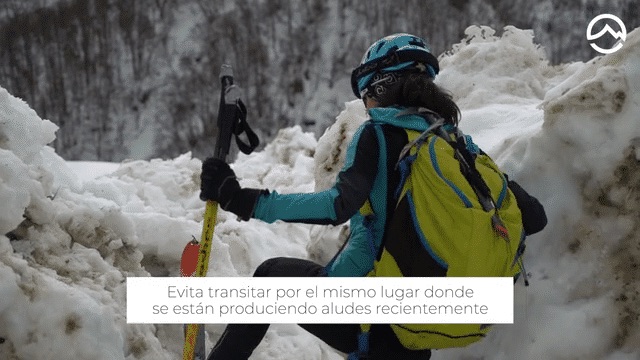 |
The 5 Warning SIGNSThe mountain usually gives us clues about what can happen. We must pay attention to the 5 warning signs. |
5 min. |
| 25 | 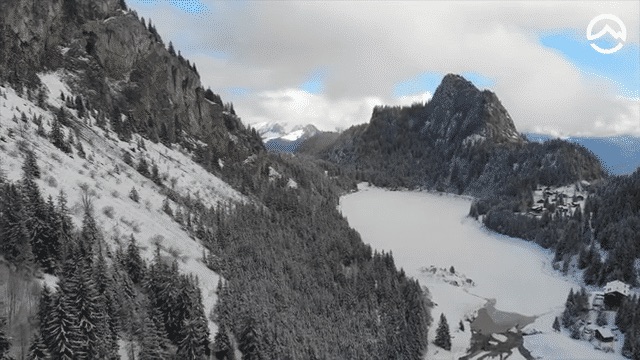 |
How to IDENTIFY AVALANCHE activity in a TERRAINHow can we detect if there have been avalanches? The vegetation will give us an answer. |
1 min. |
| 26 |  |
TEST, validates everything learned |
10 min. |
Avalanche hazard assessment
| 1 | 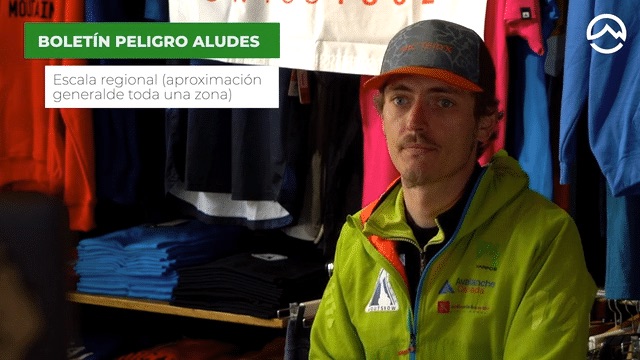 |
The BPA – Avalanche Hazard BulletinThe avalanche danger bulletin is a large-scale practical report. Its indicators will give you clues that you cannot miss. |
5 min. |
| 2 | 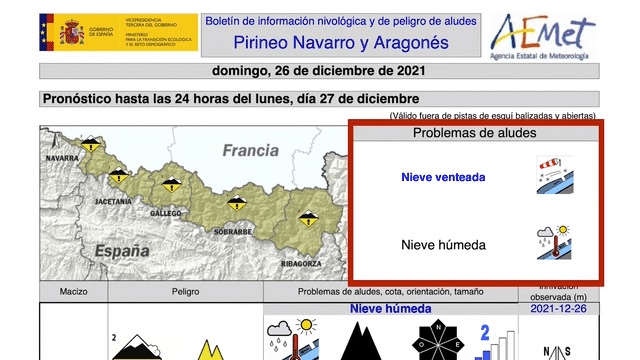 |
PRACTICAL EXAMPLE of BPAPractical example to understand BPA. |
4 minutes |
| 3 | 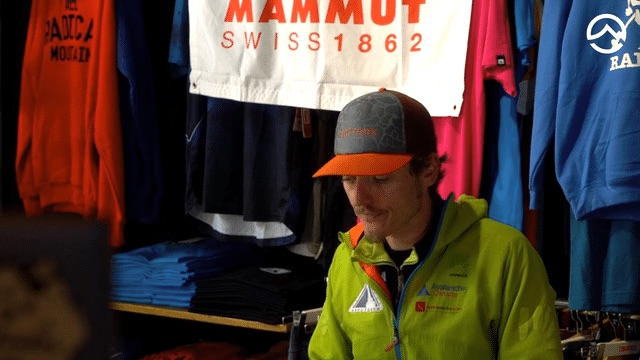 |
AVALUATOR 2.0 – Part 1The evaluator 2.0 is designed to help us make decisions. Still, we have the last word. |
4 minutes |
| 4 | 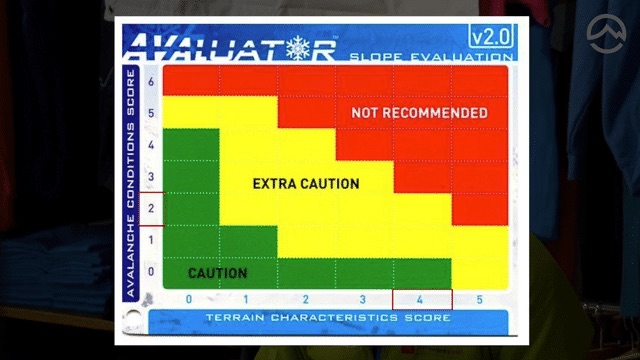 |
AVALUATOR 2.0 – Part 2Is the terrain I want to travel safe? The evaluator 2.0 will help us to identify it. |
5 min. |
| 5 | 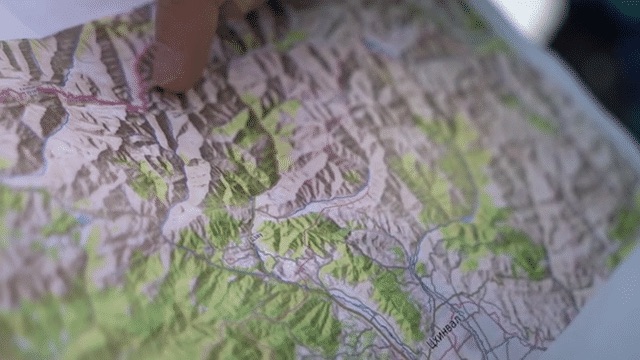 |
PLAN THE ROUTE – Daily processBefore venturing we must plan the route. Following the daily process will prevent us from leaving any loose ends. |
5 min. |
| 6 | 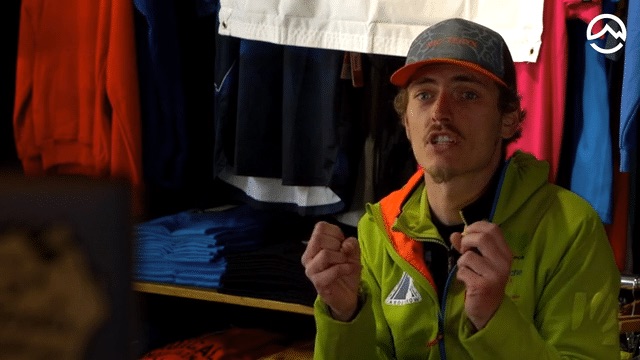 |
VERIFY CONDITIONS – Daily ProcessChecking the ground conditions is the 4th point of the daily process. This will help us to validate the BPA information. |
1 min. |
| 7 | 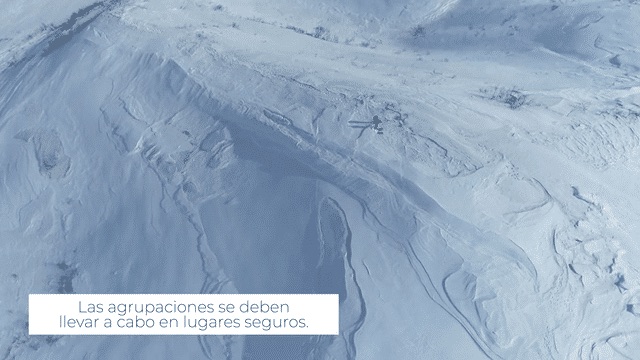 |
Habits of CIRCULATION on the MOUNTAINHaving good driving habits will prevent many potential incidents. Find out what they are! |
4 minutes |
| 8 | 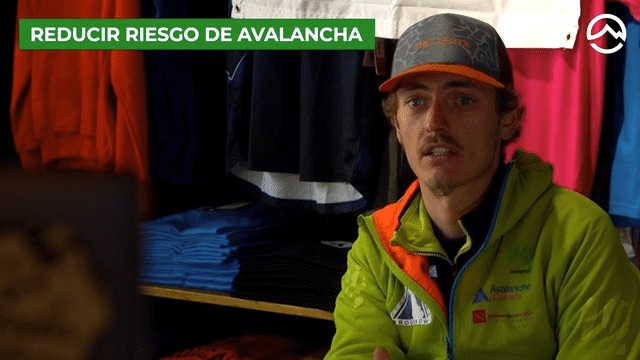 |
Strategy to REDUCE RISK and UNCERTAINTYTo reduce the risk of avalanche we must take into account 4 factors. Otherwise, we will be exposed to danger. |
3 min. |
| 9 | 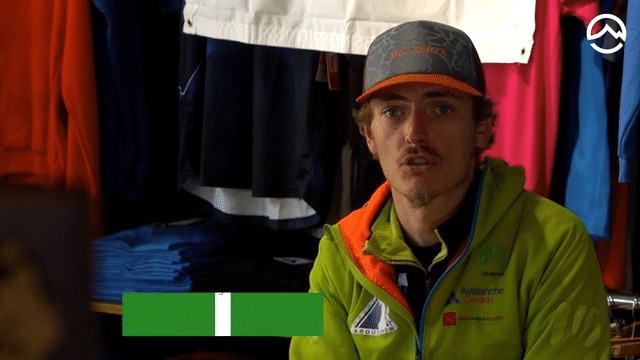 |
REFLECTIONS – After departureTo improve our level of experience it is essential to make a general reflection after the start. |
2 min. |
| 10 | 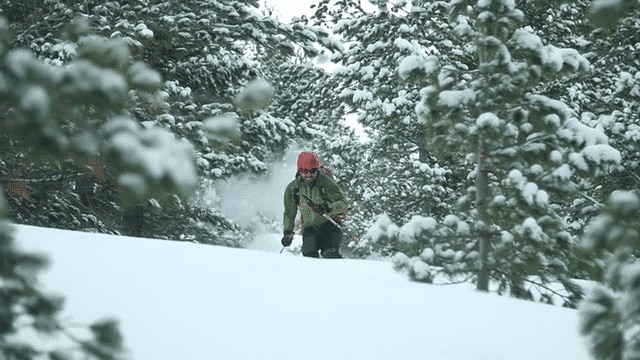 |
HOMEOSTASIS of riskWhat perception do we have of ourselves? And what about the risk? |
1 min. |
| 11 | 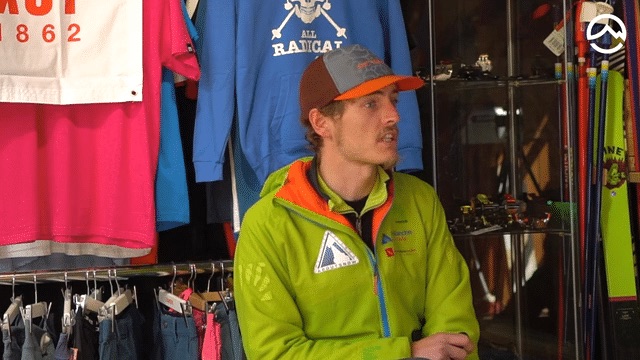 |
3X3 PROTOCOL – Decision makingUnderstanding what is happening is not enough, a protocol must be followed. This protocol is known as 3×3. |
6 min. |
| 17 |  |
TEST 5: Assessment of avalanche dangerEvaluate for yourself if you have correctly understood all the theory |
10 min. |
Ski mountaineering basics
| 1 | 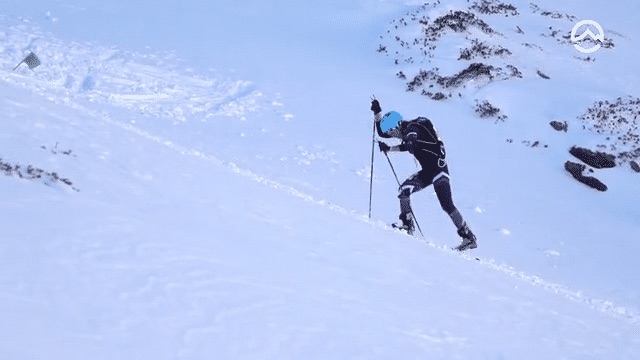 |
INTRODUCTION to ski mountaineering, what will you find in this course?Here you will find all the basic techniques so that you can perform the different ski mountaineering progression techniques in the most correct way and with the greatest possible efficiency. |
2 min. |
| 2 | 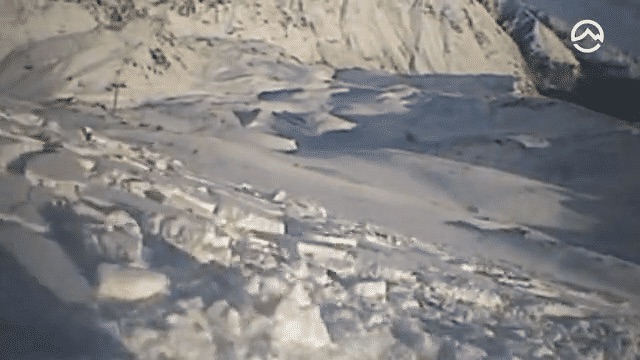 |
WHAT YOU SHOULD KNOW before starting SKIMOUnderstanding where we are moving and the limitations of this course is essential to avoid accidents. The snowy mountain is a hostile terrain, knowing how to ski is not enough |
3 min. |
| 3 | 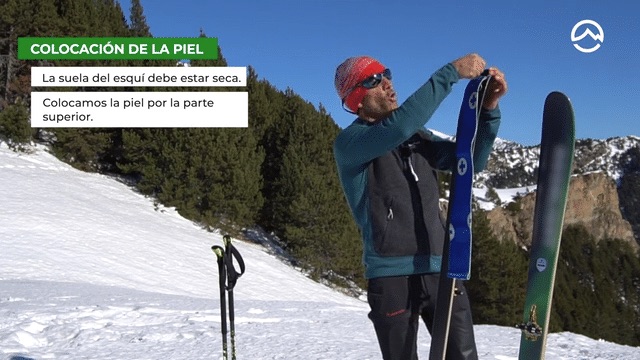 |
How to properly put on SEAL SKINSWhat types of leather are there and which are the most suitable for each use. How to avoid mistakes when placing the skins once or several times |
5 min. |
| 4 | 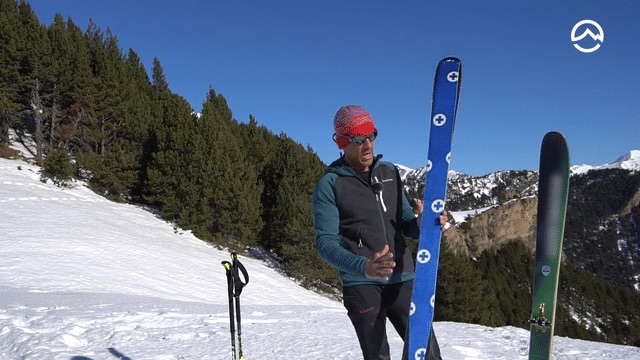 |
How to REMOVE seal skinsHow to easily remove and fold the skins in any weather situation. The first step to not have problems on the next climb. |
2 min. |
| 5 | 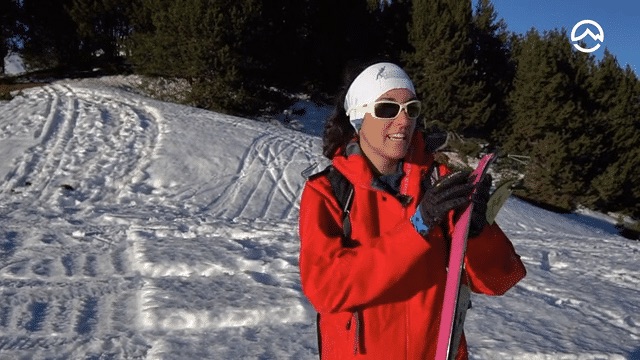 |
Solve 4 PROBLEMS, seal skinsLet’s avoid the most common problems: clogs, lack of grip… and bring the minimum material to get you out of one of the most common troubles in ski touring |
2 min. |
| 6 | 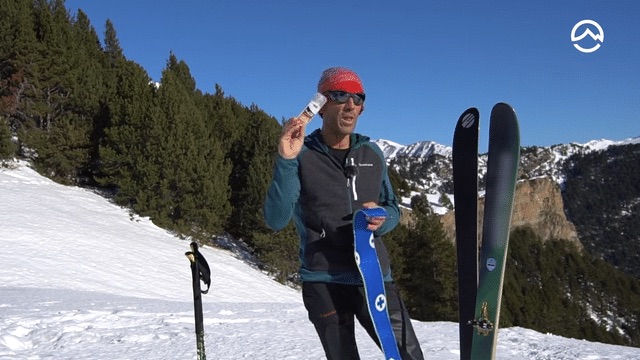 |
How to AVOID CLOGS under furSome tricks to avoid the most common problems: clogs on the skins and minimize their weight. |
3 min. |
| 7 | 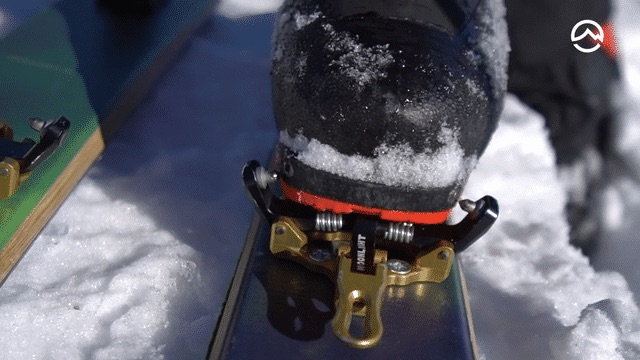 |
INSTALL FIXINGS easilyThe light bindings are great, they weigh much less than the old bindings. They only have one problem, until you get the hang of it, it takes a bit for the two pins to fit into the holes in the boot. |
4 minutes |
| 8 | 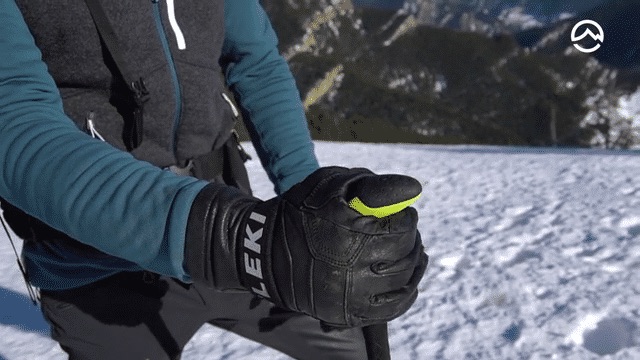 |
How to ATTACH ski polesHow to use the leashes of the ski poles. They are very helpful but depending on the situation it is better not to use them for safety, we will see when. |
3 min. |
| 9 | 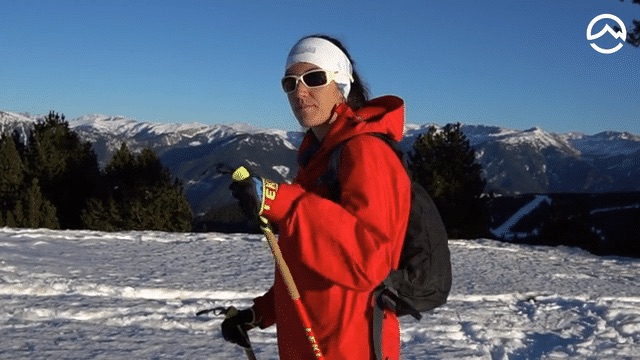 |
TECHNIQUE and correct MOVEMENTS in ski mountaineeringThe basis of all climbing movements is learned on the flat. Controlling this technique correctly we will be able to control the entire base of the progression on the ascent. |
5 min. |
| 10 | 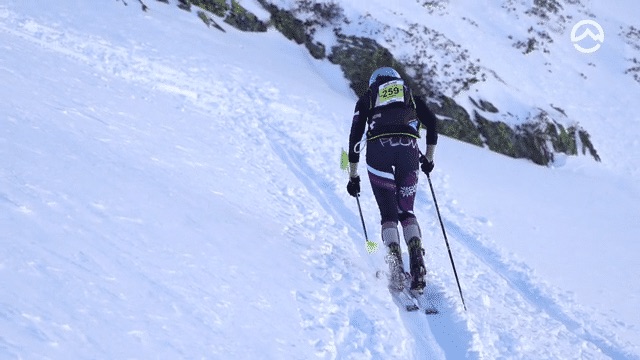 |
SKIMO TECHNIQUE UPRISINGThere are many types of climbs, we are going to see the correct general technique. All the details of the flat progression technique applied to the climbs. |
2 min. |
| 11 | 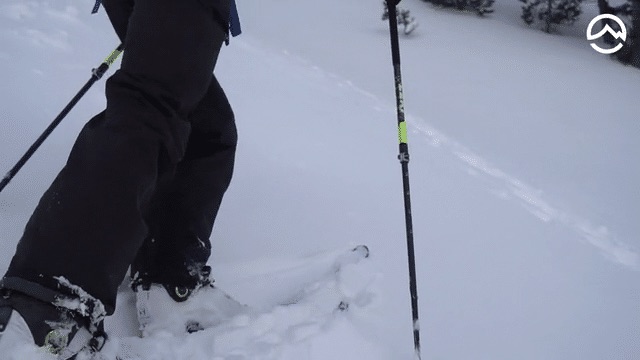 |
Skiing in DEEP SNOWWe are going to look at how to face the climb in the least tiring way possible before the big descent. The most suitable techniques for deep snow |
4 minutes |
| 12 | 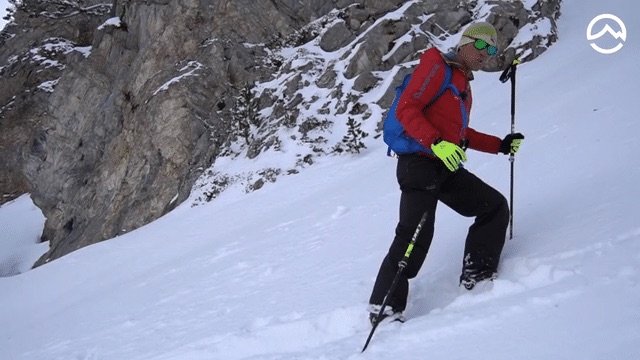 |
Skimo difficult terrain progression: NON-COHESIVE SNOWThe most appropriate techniques for difficult snow: non-cohesive snow is the one that slides when you step on it due to its lack of consistency. |
2 min. |
| 13 | 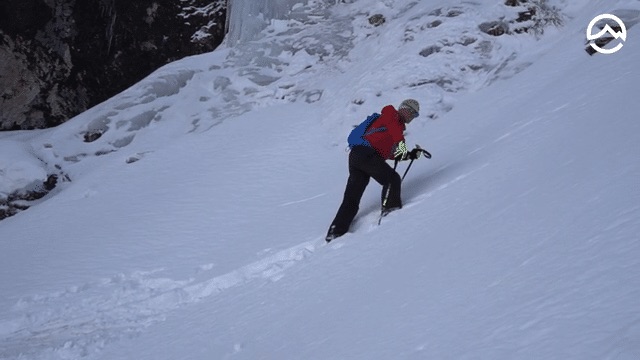 |
Difficult terrain skimo progression: HARD SNOWThe most appropriate techniques for difficult snow: hard snow. Climbing on hard snow carries the added risk of a potential fall. |
3 min. |
| 14 | 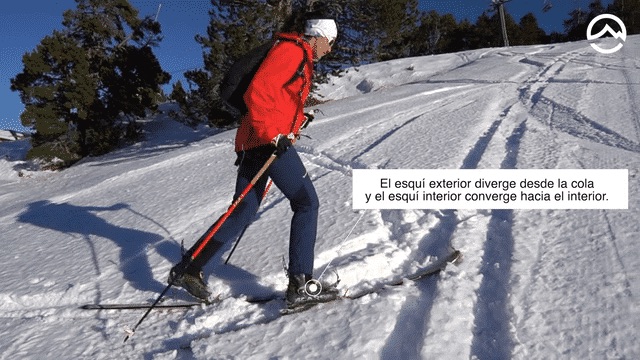 |
BASIC TURN in ski mountaineeringIn the turns, a lot of energy is consumed if they are not done correctly, a correct and accurate technique is essential to reach higher and further. |
2 min. |
| 15 | 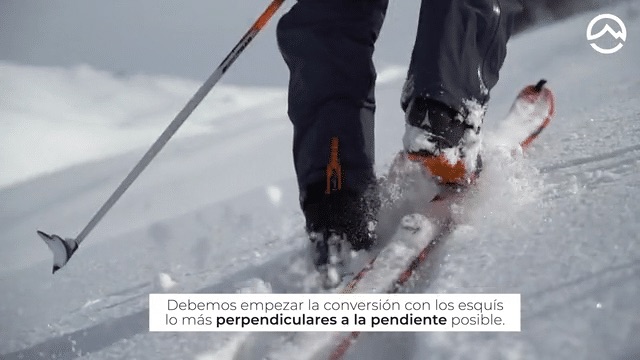 |
How to do the MARY TOURThe maria turn or convergence is the most common turn to do in a ski mountaineering climb. It is a much more technical move than most realize. |
4 minutes |
| 16 | 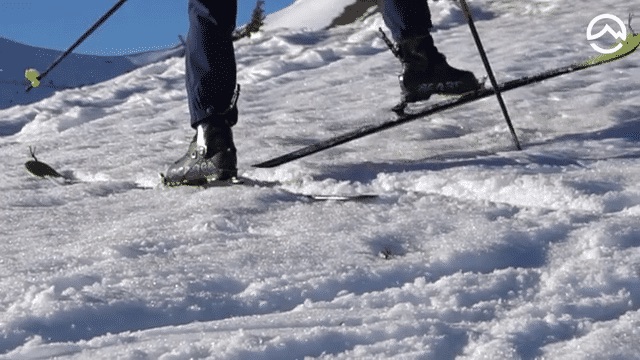 |
Tour Maria ALTERNATIVE with FREERIDE skis.The main problem when riding long or heavy skis is that turning is tiring. They are simply not performing the turn correctly. |
2 min. |
| 17 | 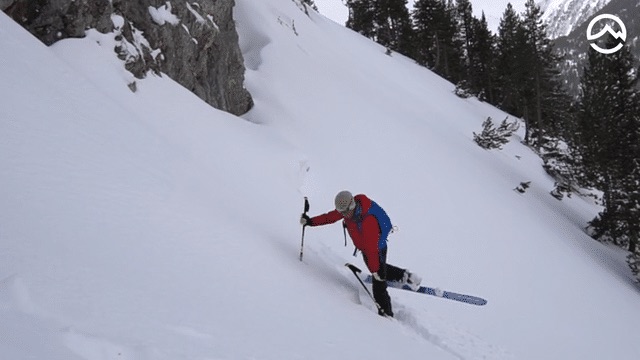 |
Vuelta María in DEEP SNOWWhen we have to dig a trench because we have a pack of snow that has just fallen, the uphill turns can be more exhausting than the pleasure we are waiting for to come downhill. |
3 min. |
| 18 | 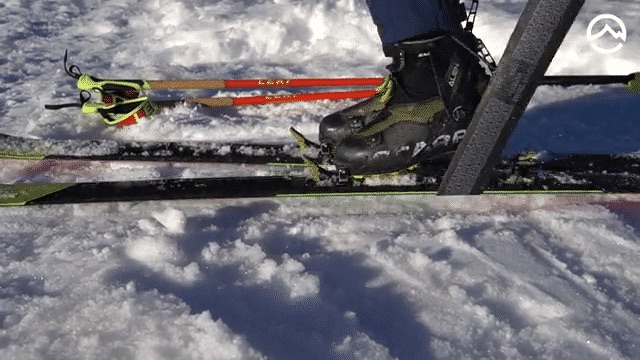 |
Remove SEAL SKIN, steps to followThe correct technique to remove seal skins detailed step by step. The first temptation when reaching the top is to take off our skis and calmly remove the skins, but there is another, much more efficient way to make this change. |
3 min. |
| 19 | 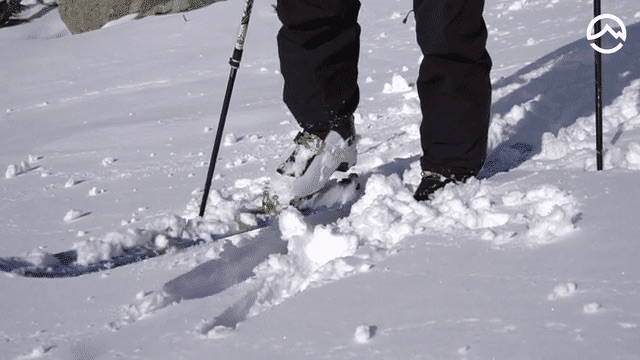 |
REMOVING sealskin from BEHIND on normal skisIf you think that fast skin changes are not possible for your touring skis, you are wrong. |
3 min. |
| 20 | 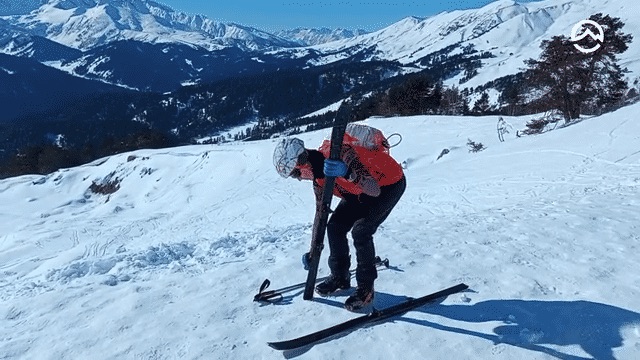 |
FAST and COMPETITION change in SKIMOThe most efficient skin change is the competition one, learn all the steps in detail. |
2 min. |
| 21 | 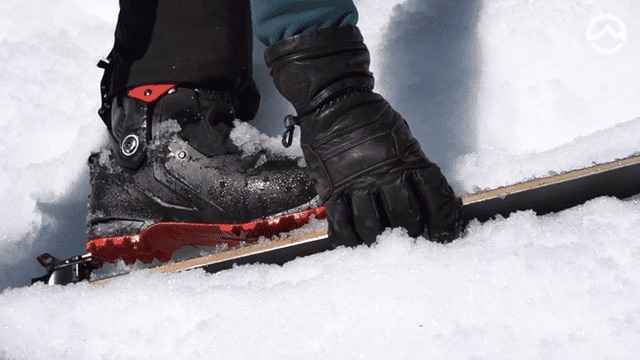 |
REMOVE mountain skis on a steep SLOPEAll the steps to take off your skis and put on crampons safely in exposed places. |
6 min. |
| 22 | 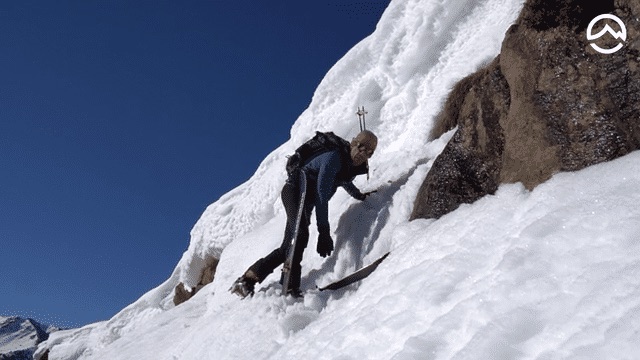 |
PLACE mountain skis on a steep SLOPE.All the steps to put on your skis safely in exposed places. |
6 min. |
| 23 | 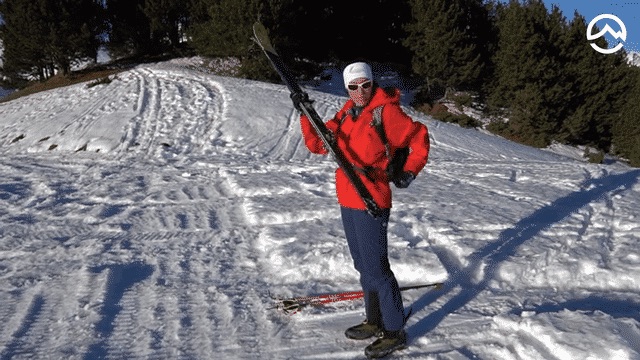 |
How to PLACE skis in BACKPACKThe different techniques and details to store the skis depending on the situation in which we find ourselves: The competition system is the fastest both to store and to remove the skis from the backpack. |
2 min. |
| 24 | 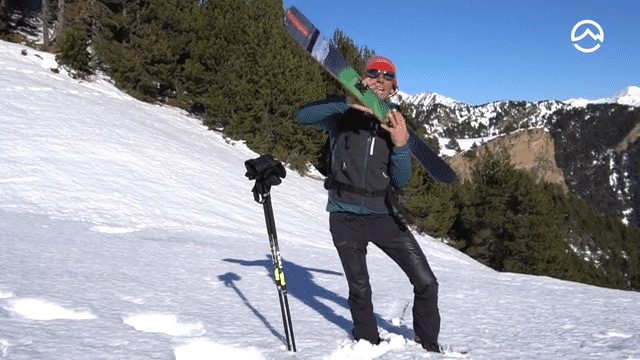 |
STORE skis in a BACKPACK, other TECHNIQUESThere is a technique that allows us to store and remove the skis in any backpack faster than with competition material, we are going to explain the technique and see what limitations it has in terms of comfort. |
4 minutes |
| 25 | 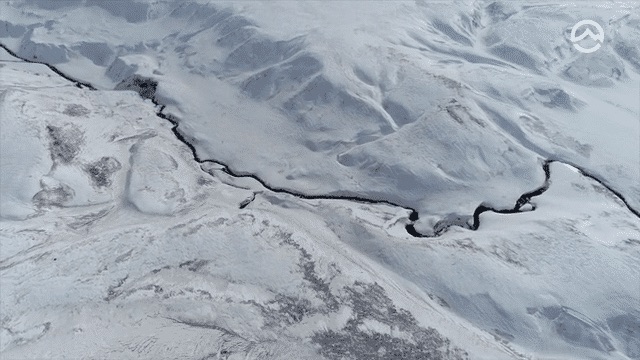 |
How to CHOOSE the best ITINERARY in ski mountaineeringChoosing the most appropriate route is an art, you have to follow some basic concepts and then practice and practice. |
3 min. |
| 26 | 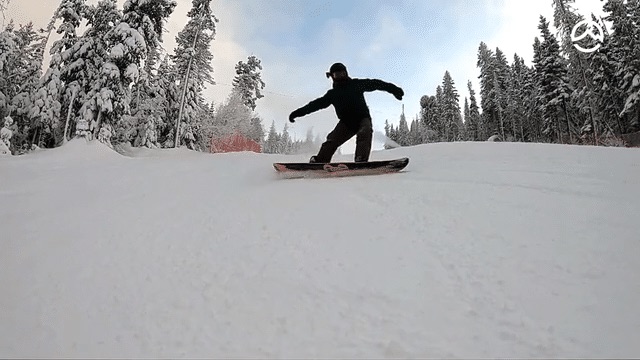 |
Skimo in SKI RESORTSThe advantages and risks of skimo in ski resorts. The stations are a fully controlled place without the intrinsic risks of the mountain, such as avalanches. |
2 min. |
| 27 | 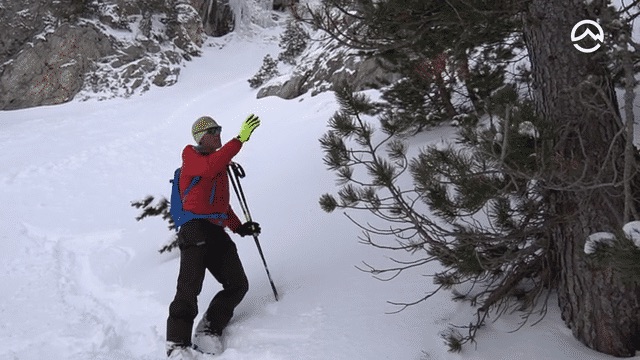 |
DANGERS in ski mountaineering: TREESAvoid terrain traps: how to draw near trees to avoid accidents and avalanches |
2 min. |
| 28 | 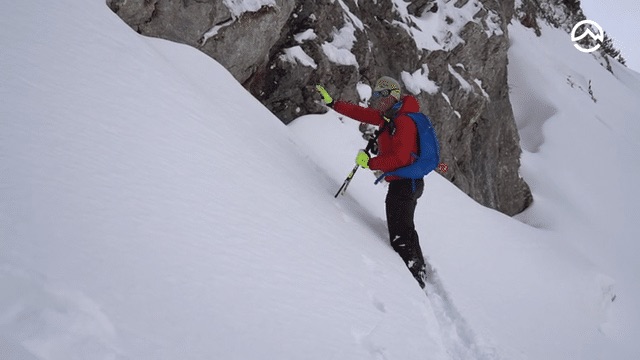 |
DANGERS in ski mountaineering: ROCKSAvoid terrain traps: how to draw near rocks to avoid accidents and avalanches |
3 min. |
| 29 | 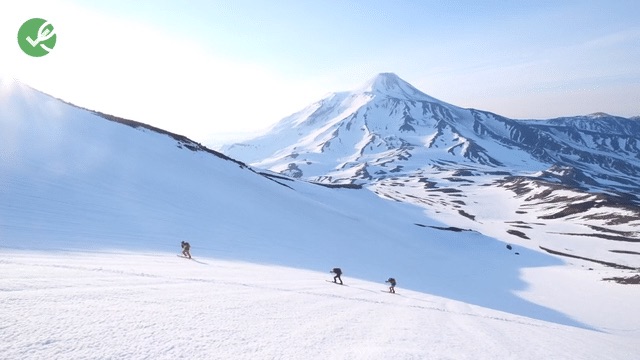 |
How to go in a GROUP in Ski MountaineeringProgressing correctly in a group is the difference between increasing safety at the start and disaster. |
2 min. |
| 30 |  |
TEST, validates everything learnedEvaluate for yourself if you have correctly understood all the theory |
10 min. |
Ski maintenance
| 1 | 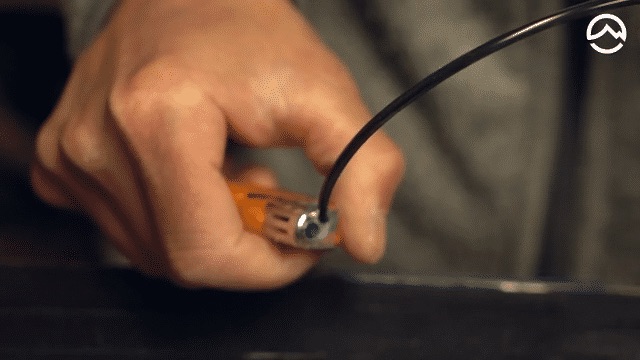 |
How to REPAIR Ski soleThe more you slide, the less you get tired. Discover how to repair the sole of skis. |
3 min. |
| 2 | 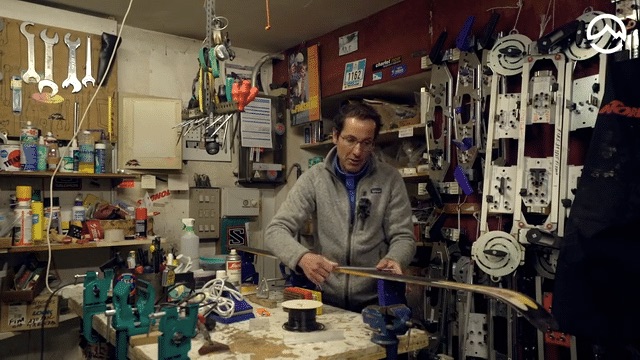 |
How to FILE ski edgesDiscover how to file the 2 edges of the skis. Will a file suffice? |
2 min. |
| 3 | 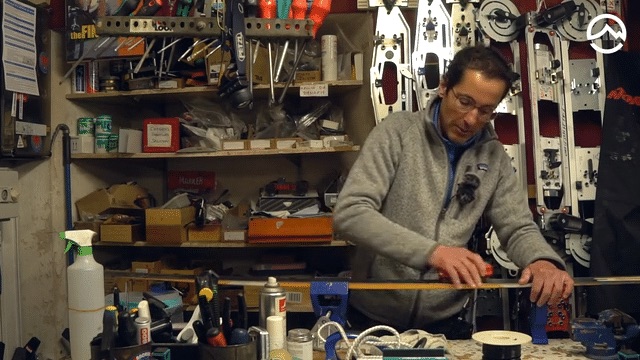 |
How to WAX skisFind the materials and steps to follow to correctly wax the skis. Take into account the pores in the sole of the skis. |
6 min. |
| 4 | 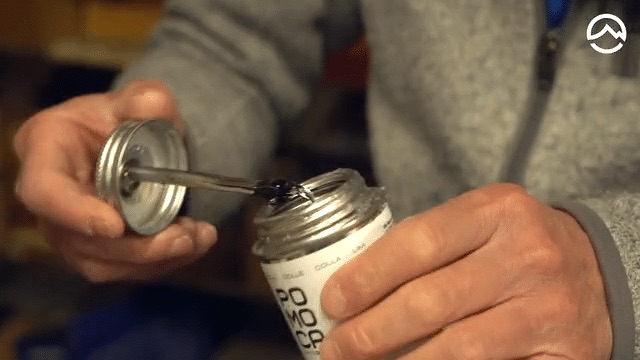 |
SEAL SKINS, what should I knowFind out what types of seal skins there are and which is the most optimal for your skis. |
5 min. |
| 5 | 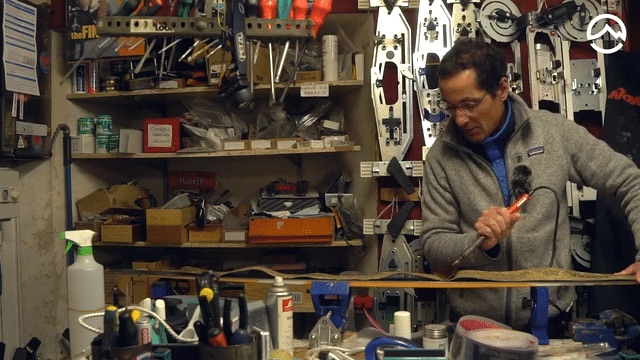 |
Seal skins, TAIL changeDiscover how to change the tail of the seal skins. |
2 min. |
| 6 | 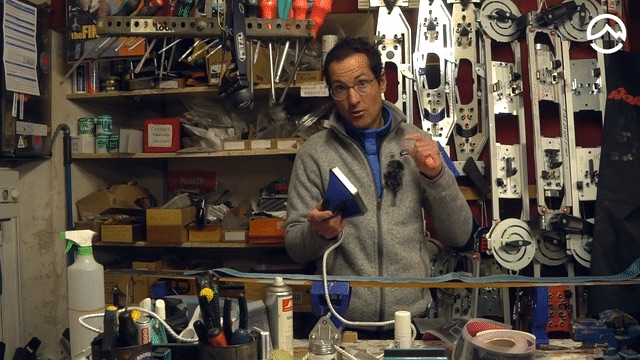 |
AVOID snow CLOGS on skisDrip the wax on the skin and pass the iron so that it is very liquid. |
3 min. |
| 7 | 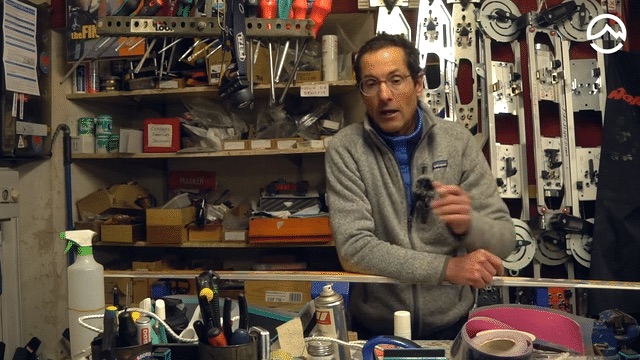 |
Ski MAINTENANCE, more considerationsAvoid ski wear with good maintenance. |
3 min. |
ski equipment
| 1 | 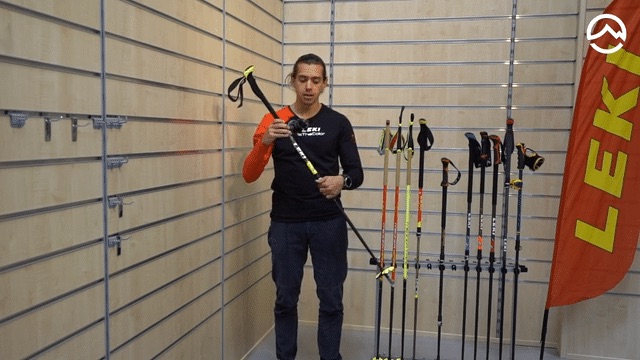 |
What ski mountaineering pole do I NEED?There are several types of poles for ski mountaineering. It is not that some are better than others, it is that depending on your technique, the type of activity that you are going to do… |
4 minutes |
| 2 | 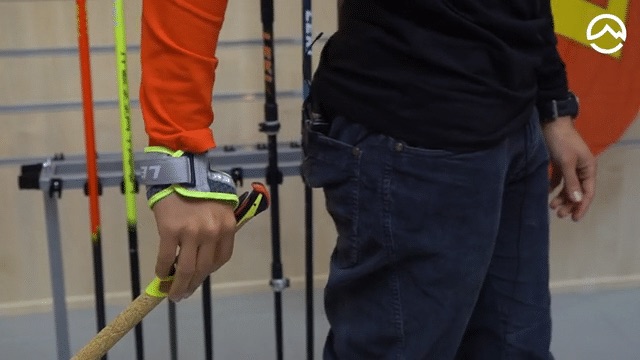 |
Types of DRAGONERAS for ski mountaineeringWe help each other push the poles with the leash. But there are different types and we have to look at which one best suits our needs. |
5 min. |
| 3 | 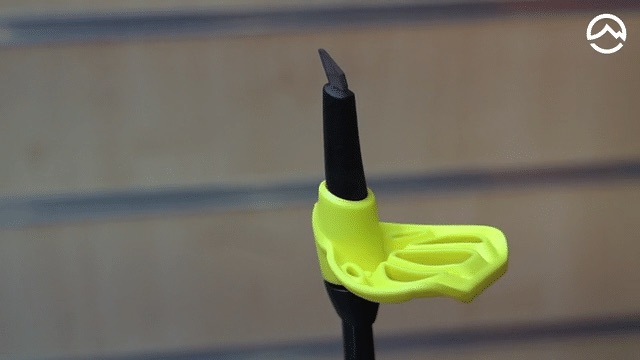 |
Types of TOES in sticks according to the snow.If we usually go through an area with deep snow, it has nothing to do with going up a ski resort with hard snow. |
3 min. |
| 4 | 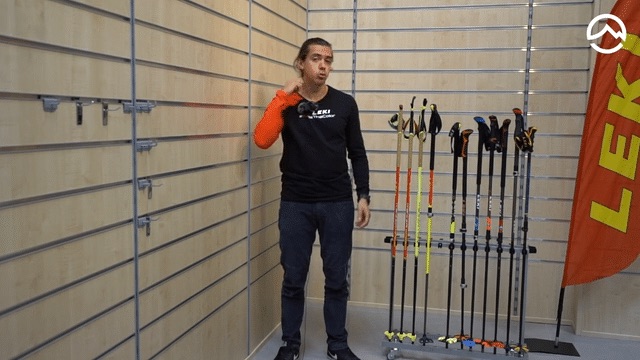 |
Types of MATERIAL in STICKSThe material of our ski touring poles has important implications. |
2 min. |
| 5 | 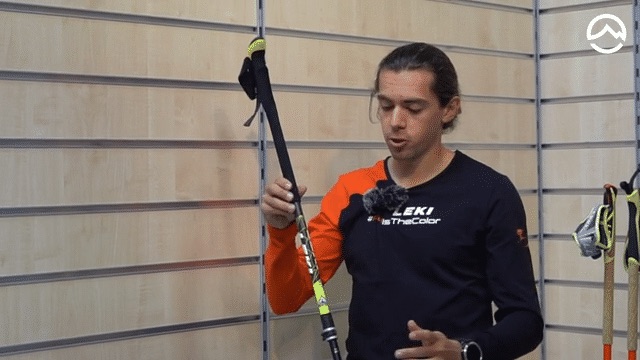 |
The size of the canesWe are going to explain three different techniques to decide what size of ski mountaineering poles to choose. |
3 min. |
| 6 | 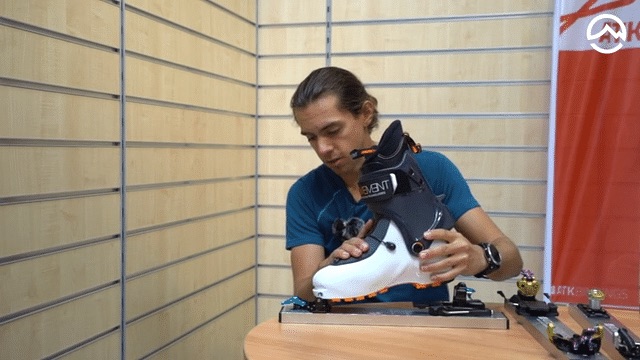 |
Parts of the bindingsTo correctly choose the type of binding that best suits your type of ski, it is essential to first understand all the parts of the different bindings. |
4 minutes |
| 7 | 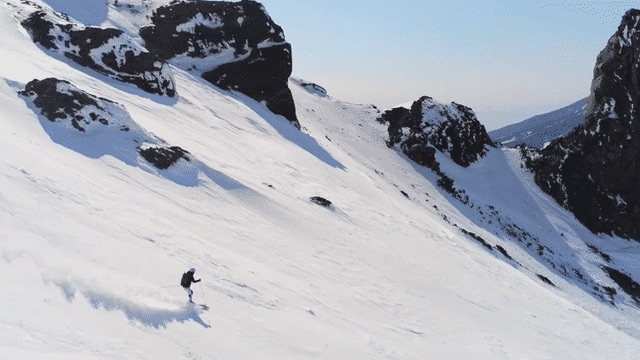 |
Strength in fixingsMost of the ski mountaineering bindings allow you to regulate the force of the binding so that they jump when we fall. |
1 min. |
| 8 | 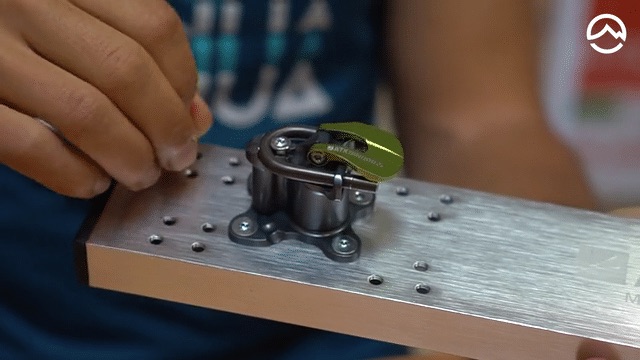 |
Competition bindingsWe detail all the parts and features that the different models of ski mountaineering competition bindings can offer. |
3 min. |
| 9 | 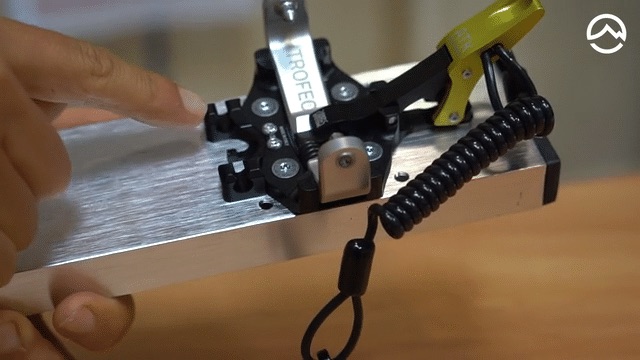 |
SPEED TOURING bindingsWe detail all the parts and features that the different models of SPEED TOURING ski mountaineering bindings can offer. |
2 min. |
| 10 | 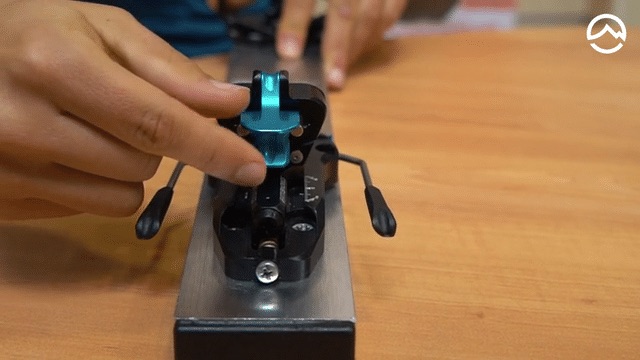 |
TOURING bindingsWe detail all the parts and features that the different models of TOURING bindings can offer in ski mountaineering. |
3 min. |
| 11 | 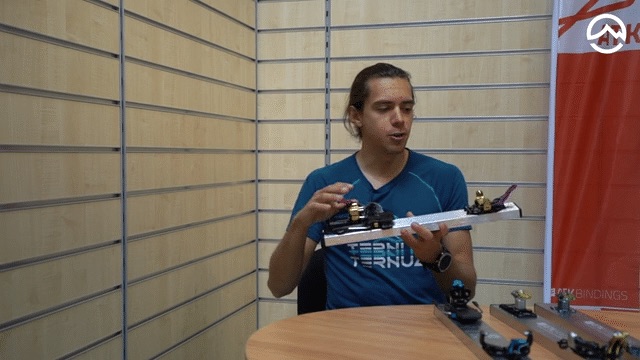 |
Freeride bindingsWe detail all the parts and features offered by Freeride bindings. Find the details and technology that make them exclusive. |
4 minutes |
| 12 | 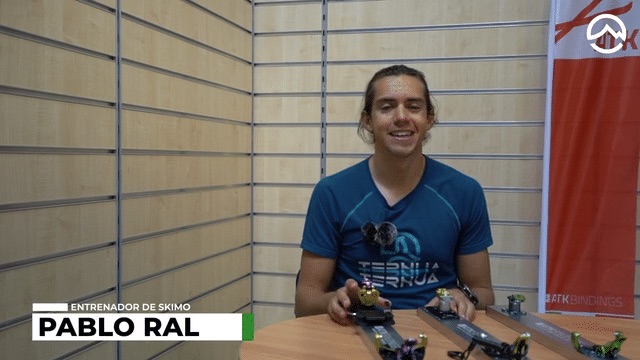 |
BIND skis or put BRAKES on skimo?Find the advantages and disadvantages of the 3 binding systems and choose whether to tie the skis or apply brakes. |
6 min. |
INSTRUCTORS AND COLLABORATORS
Our Staff is made up ofprofessionals with proven experienceon his land thatthey will pass on all their years of knowledge to you in a 100% flexible format.
We also rely oncollaborators and brands of international prestige to provide us with their technical knowledge.

